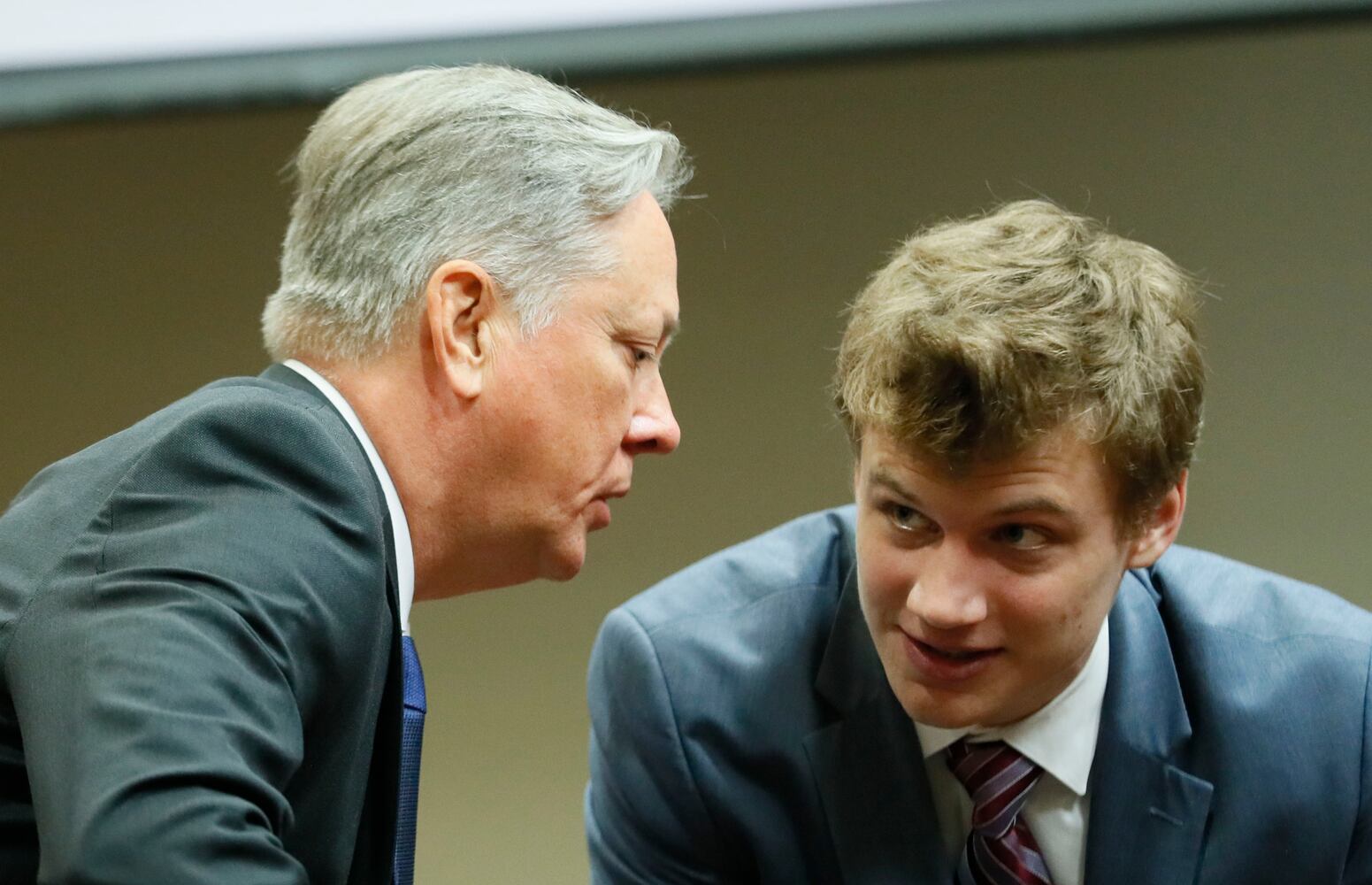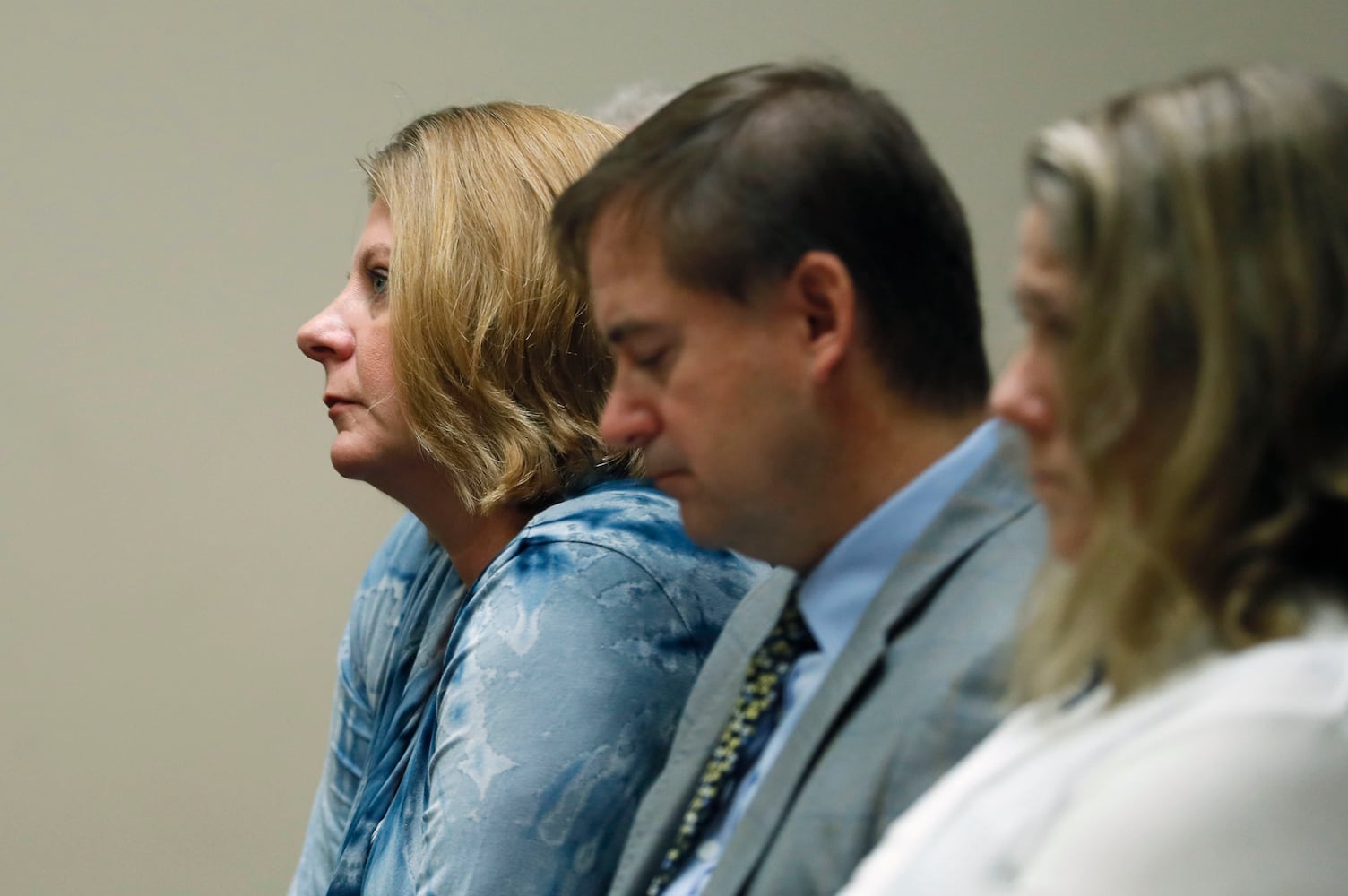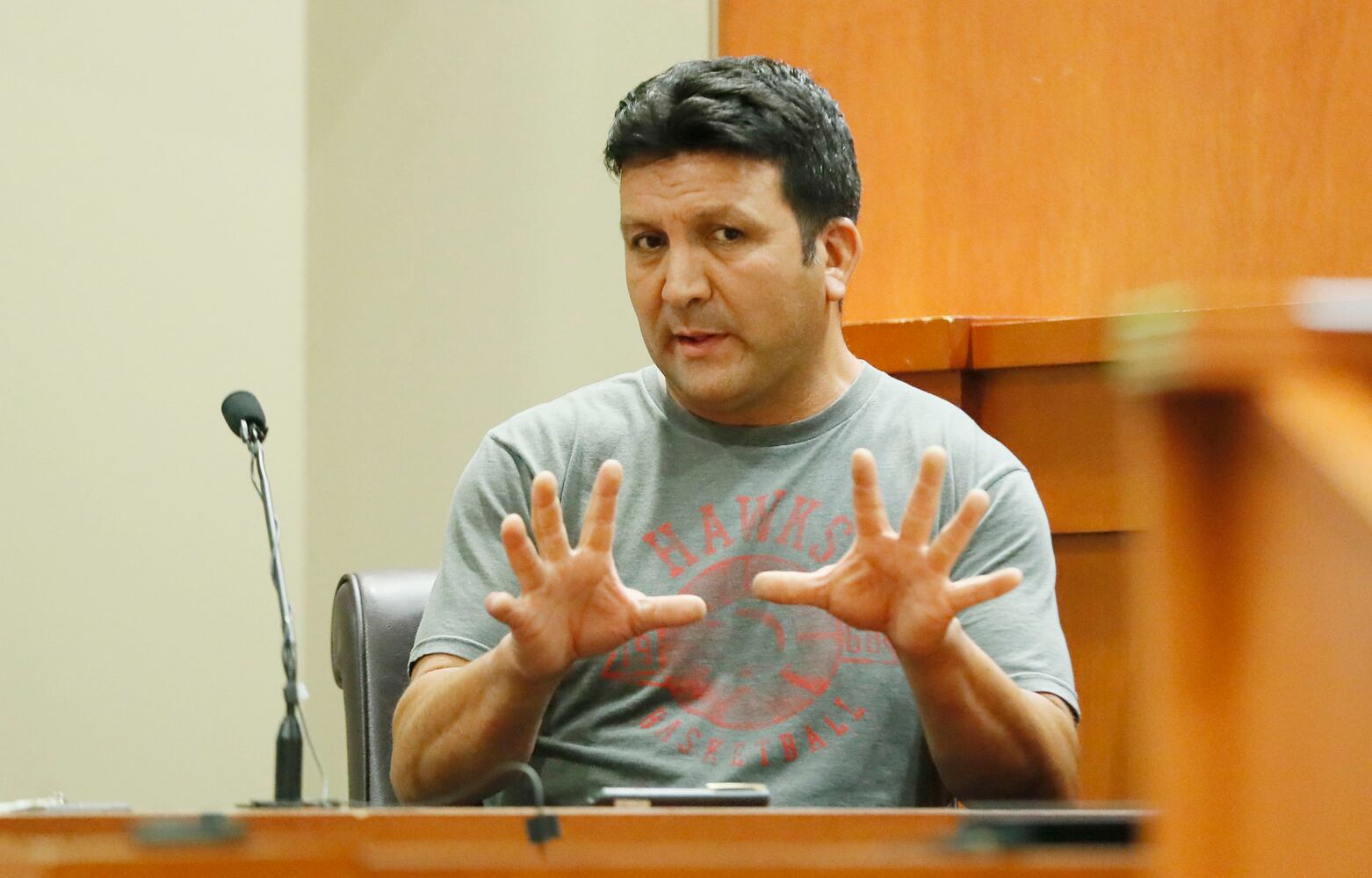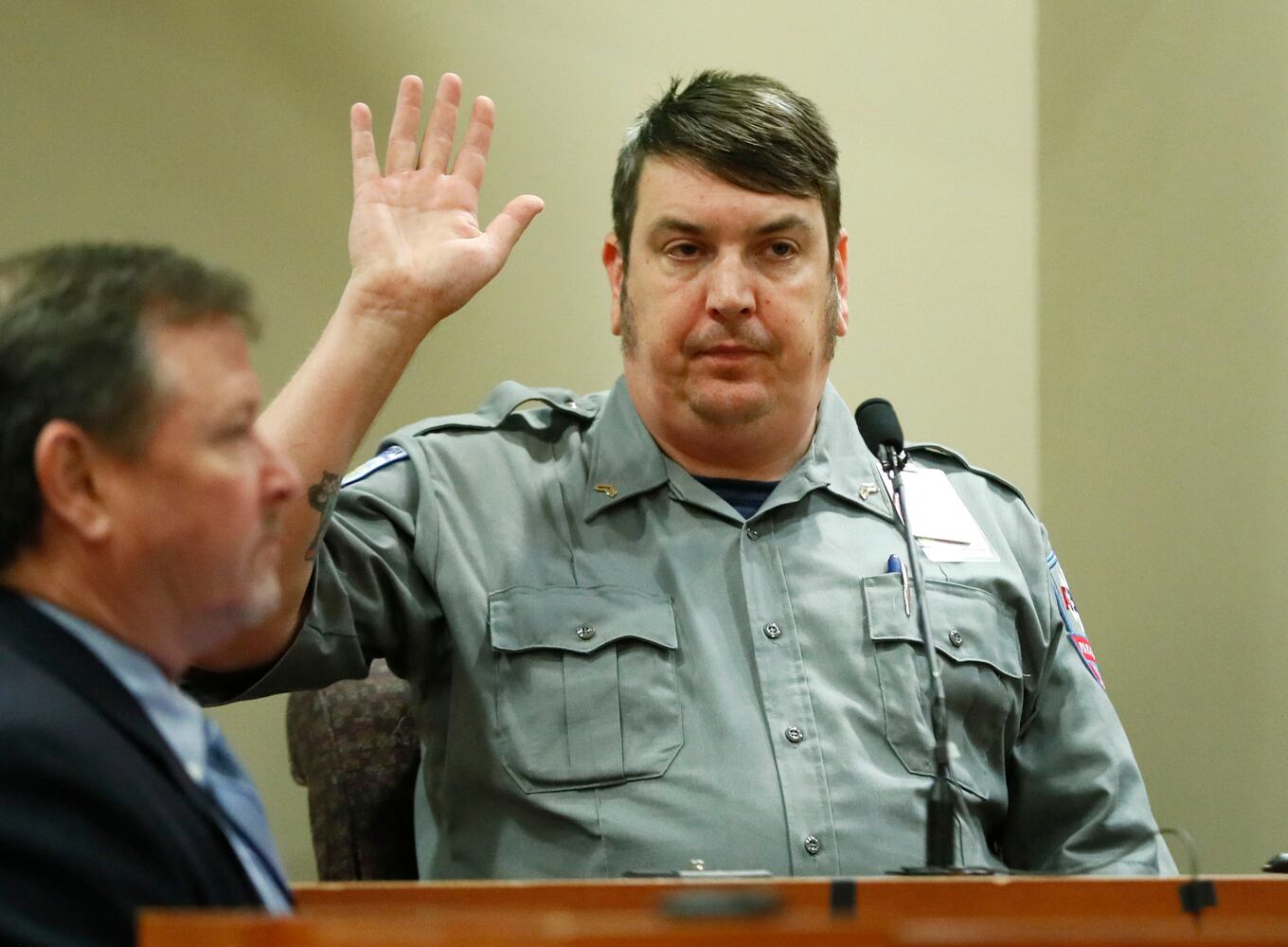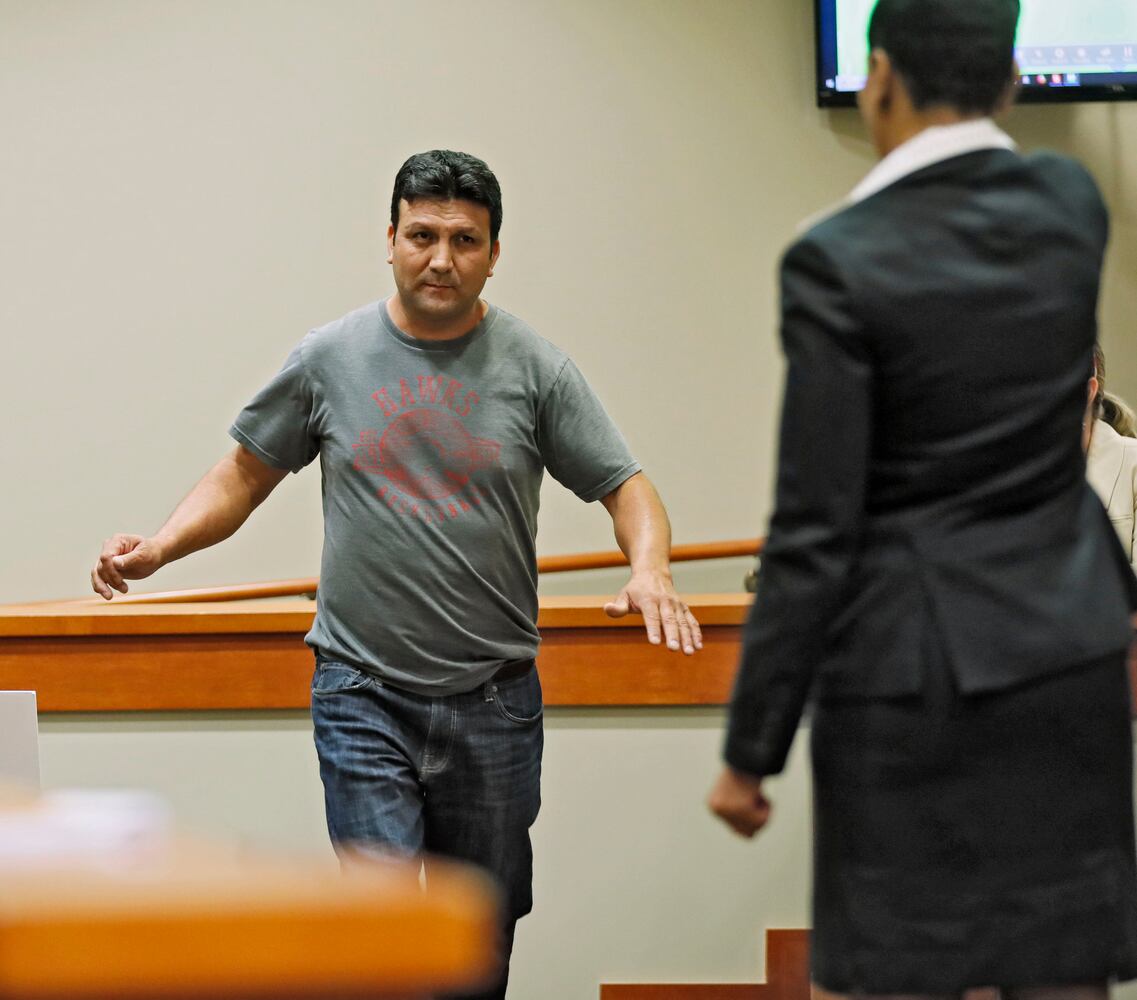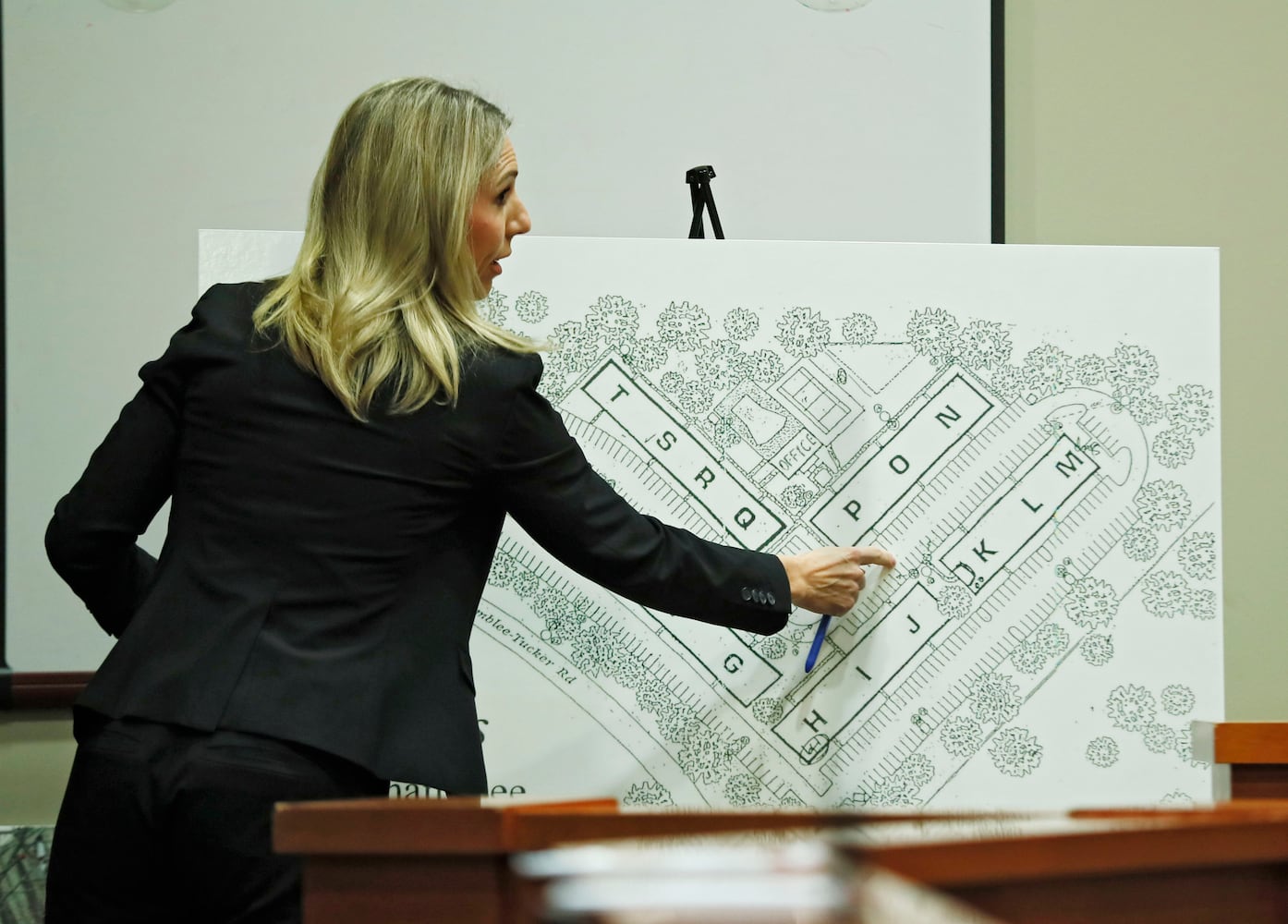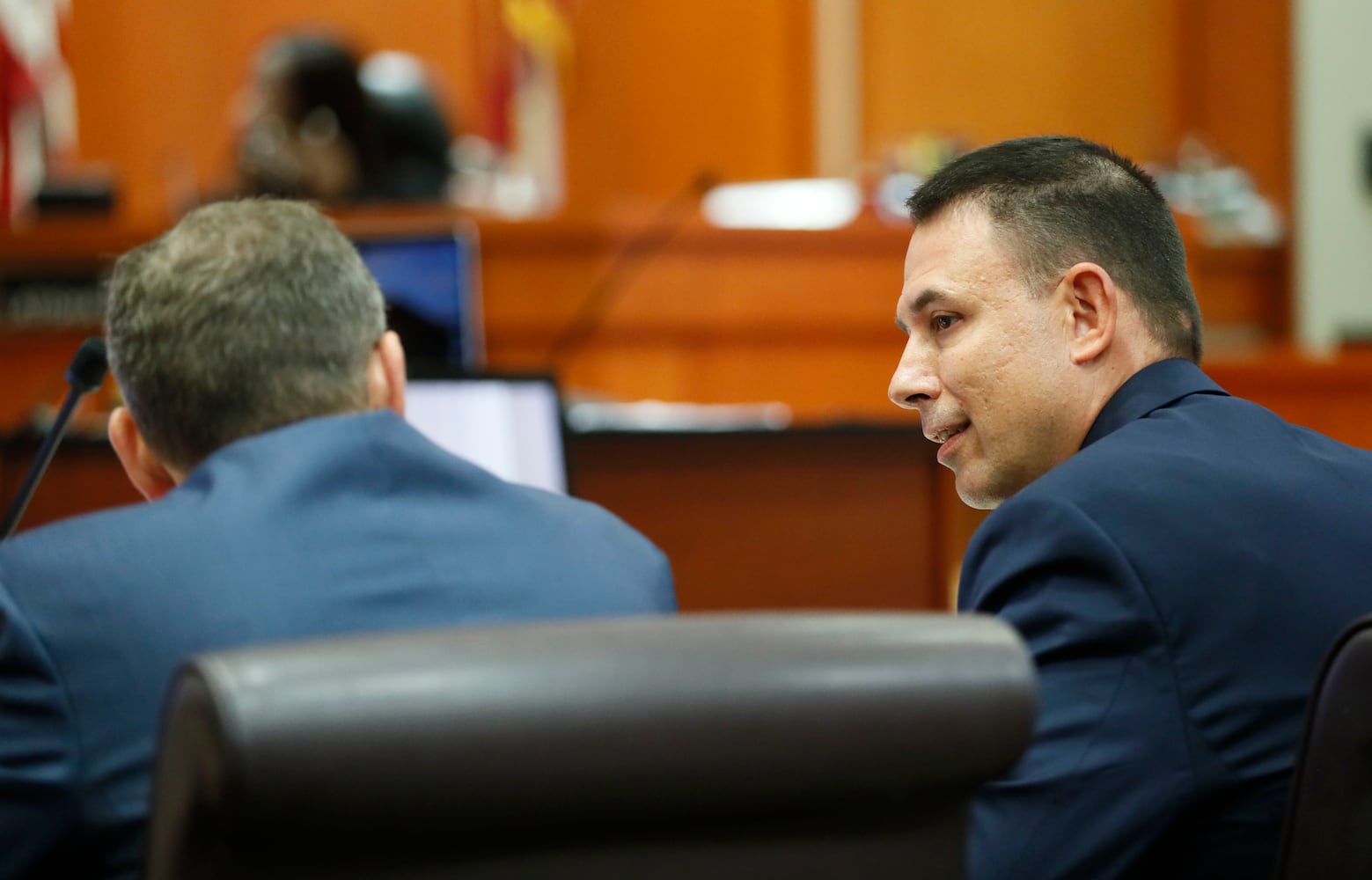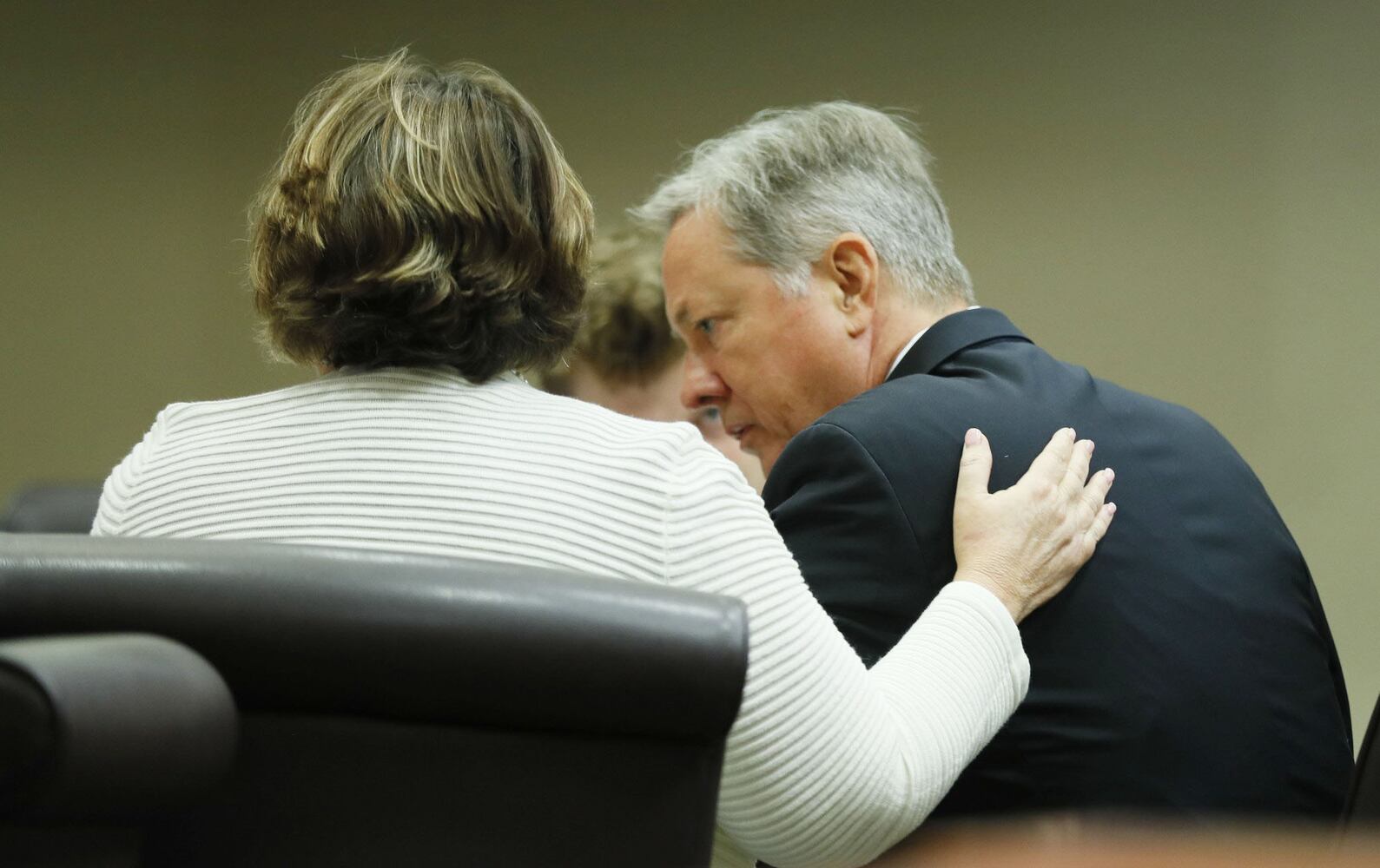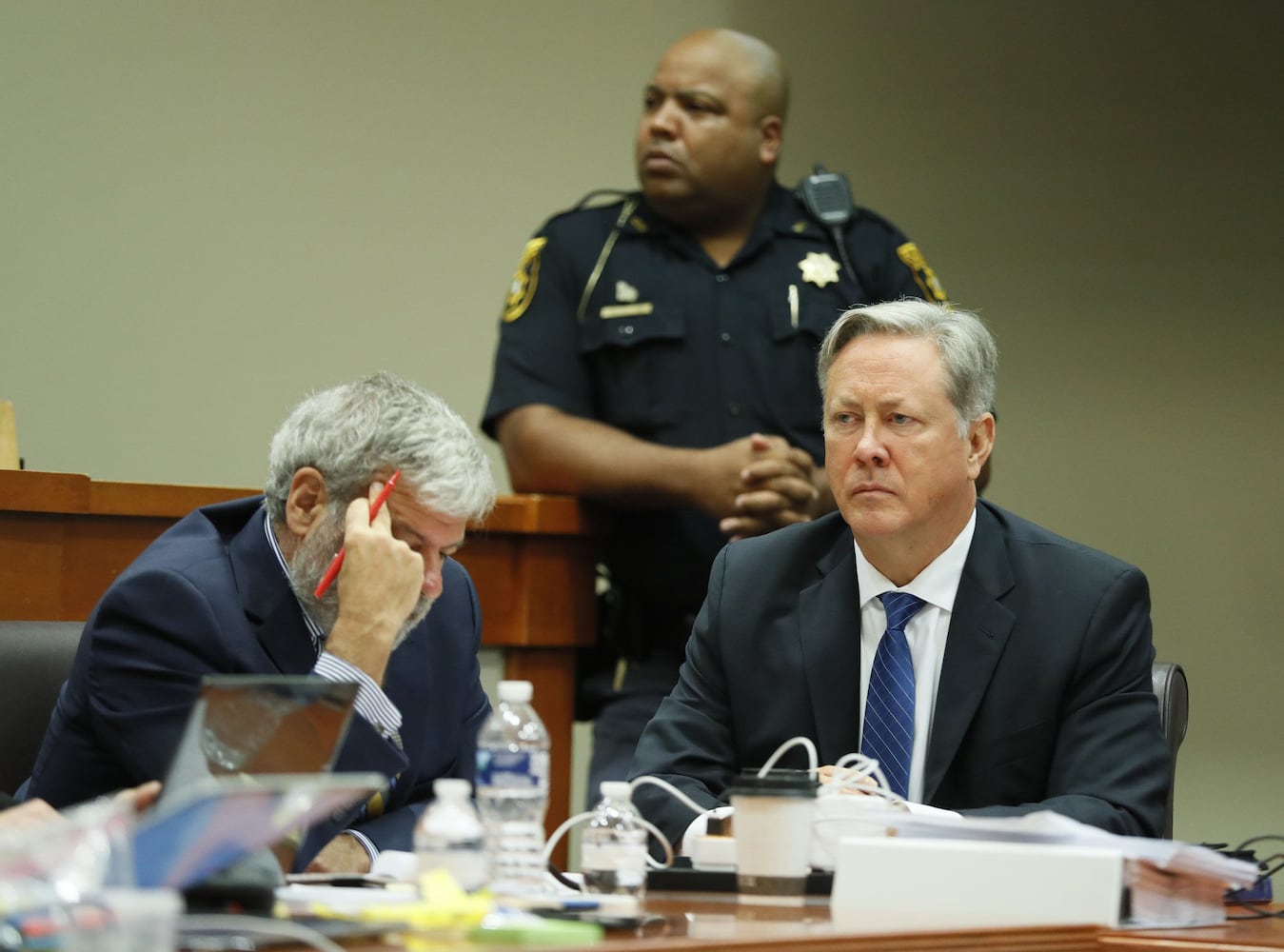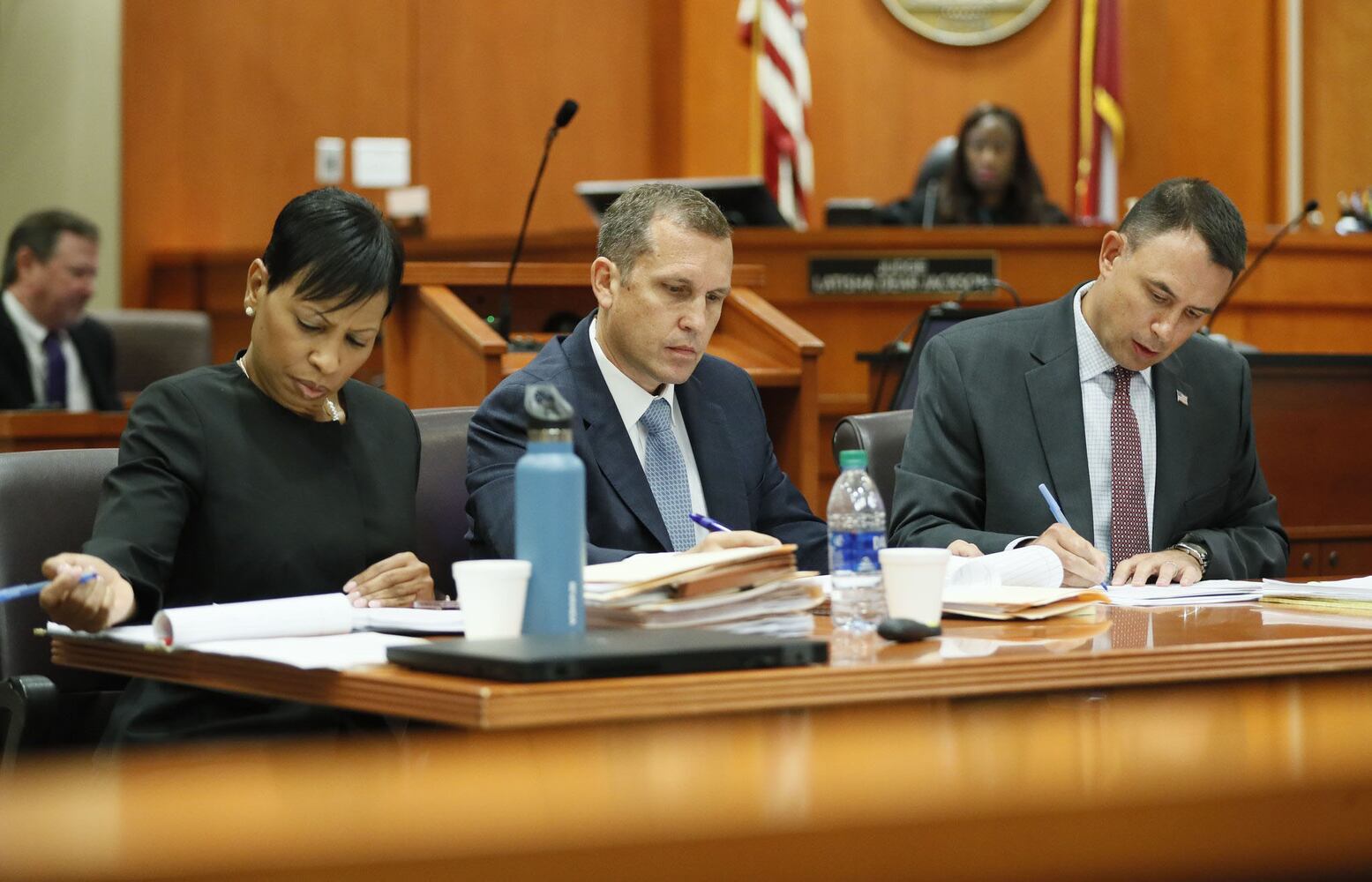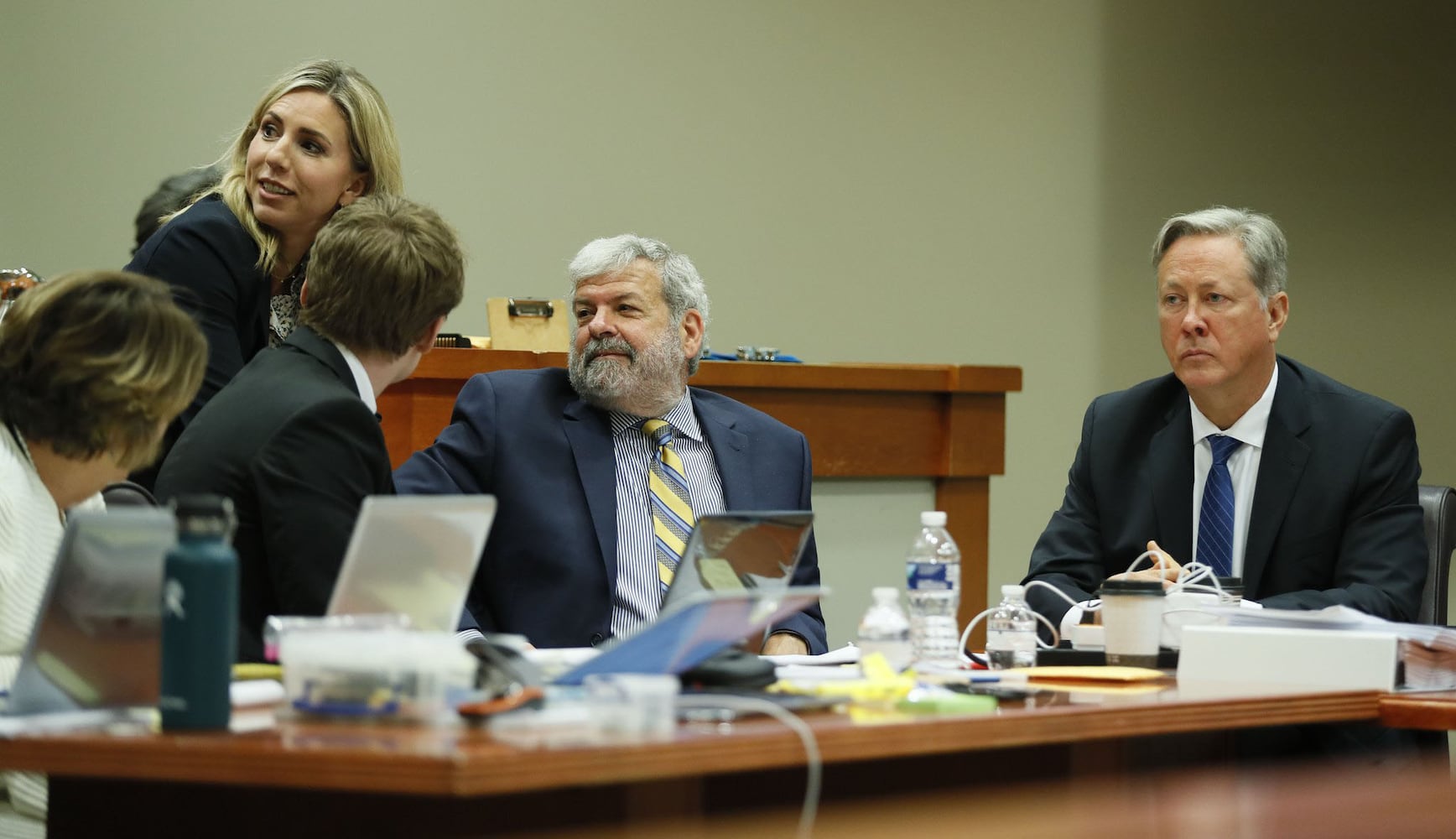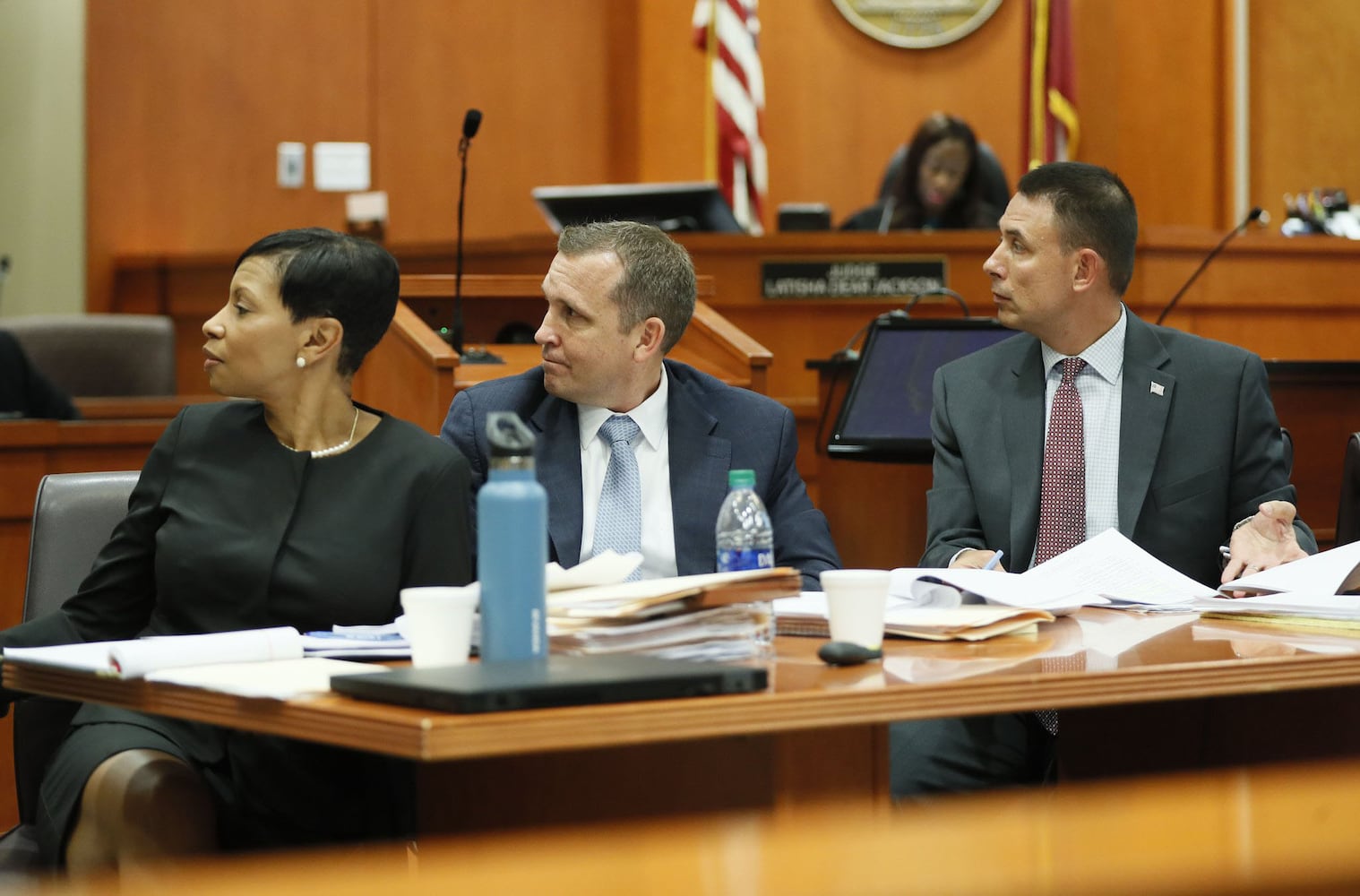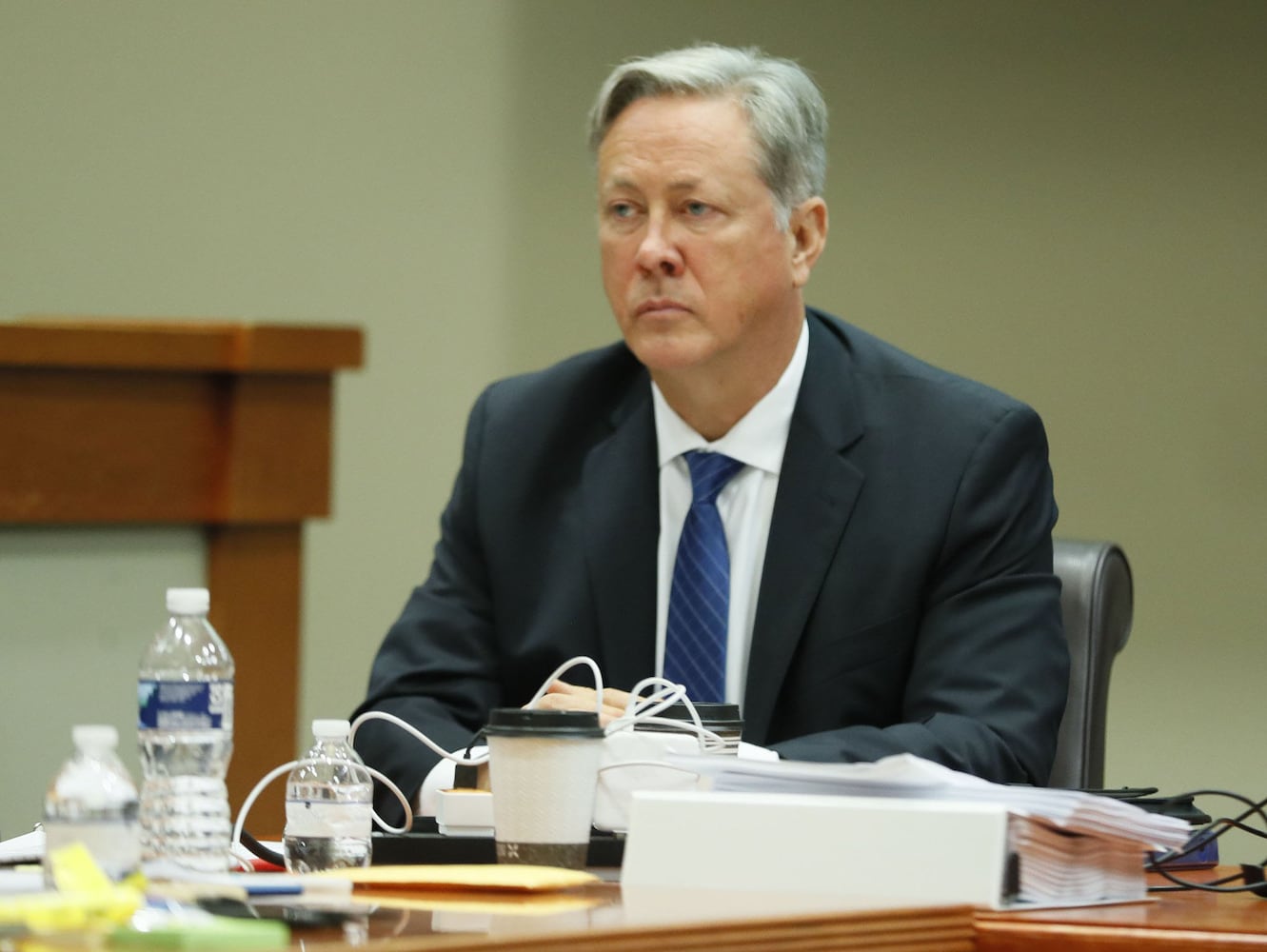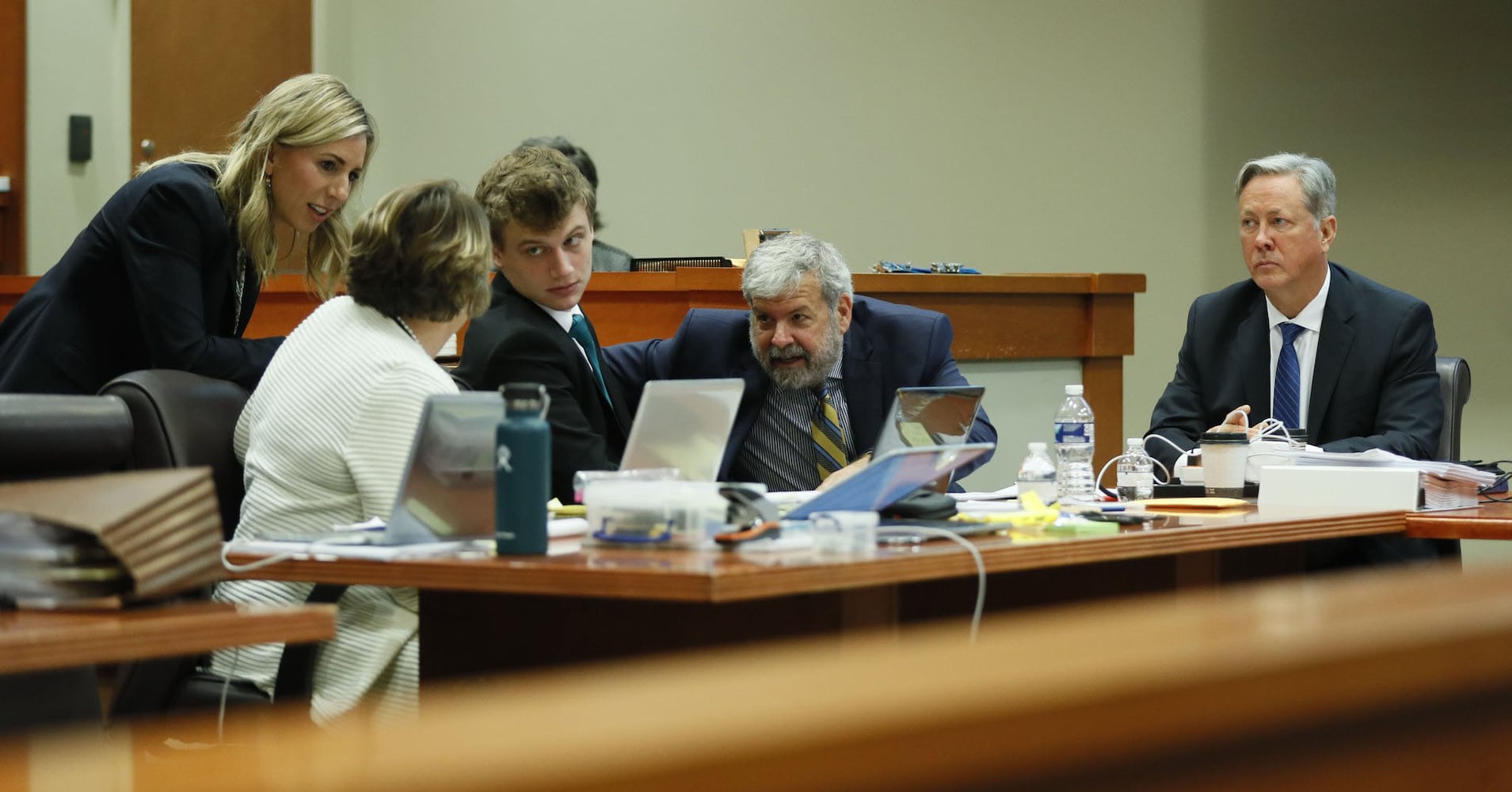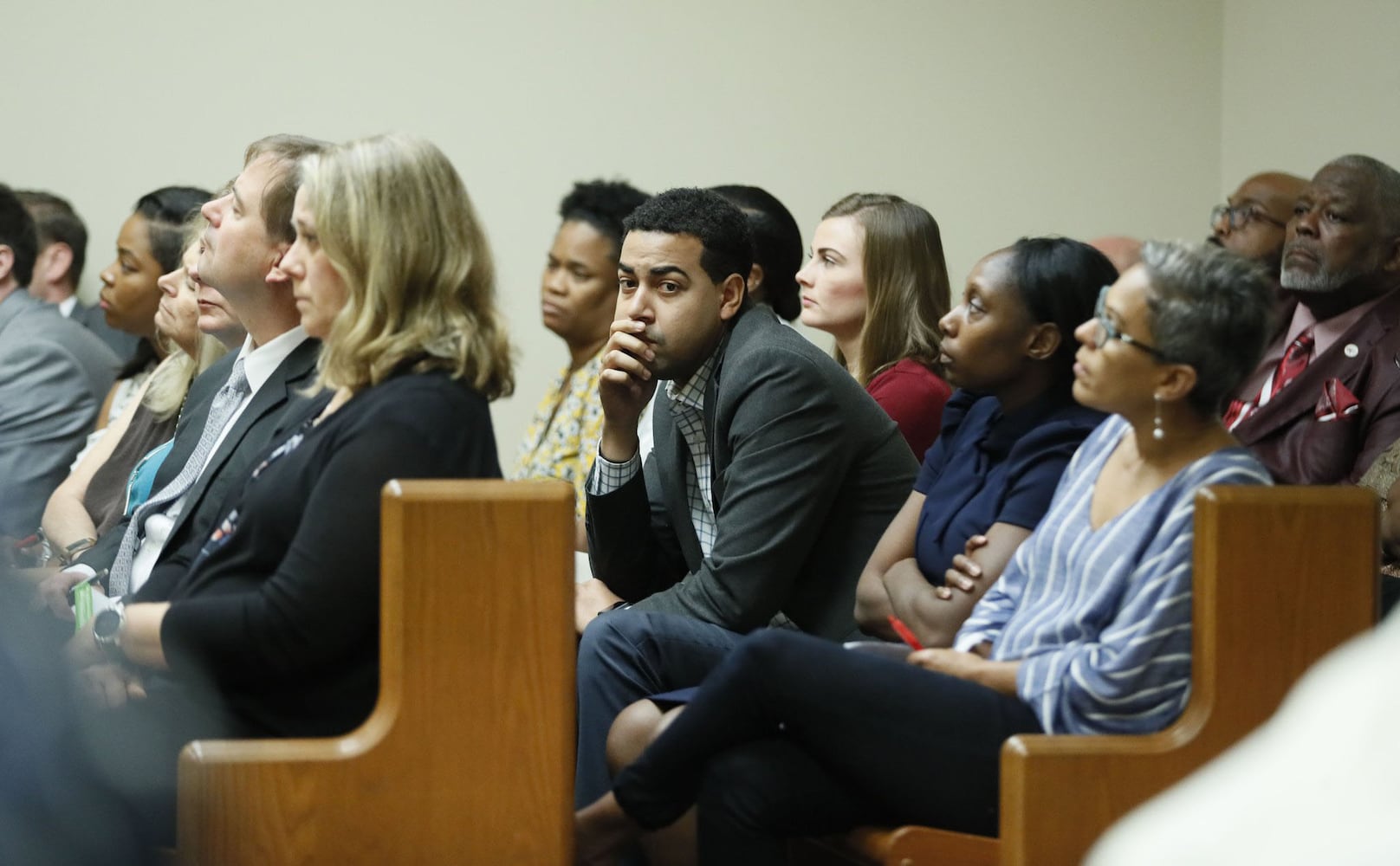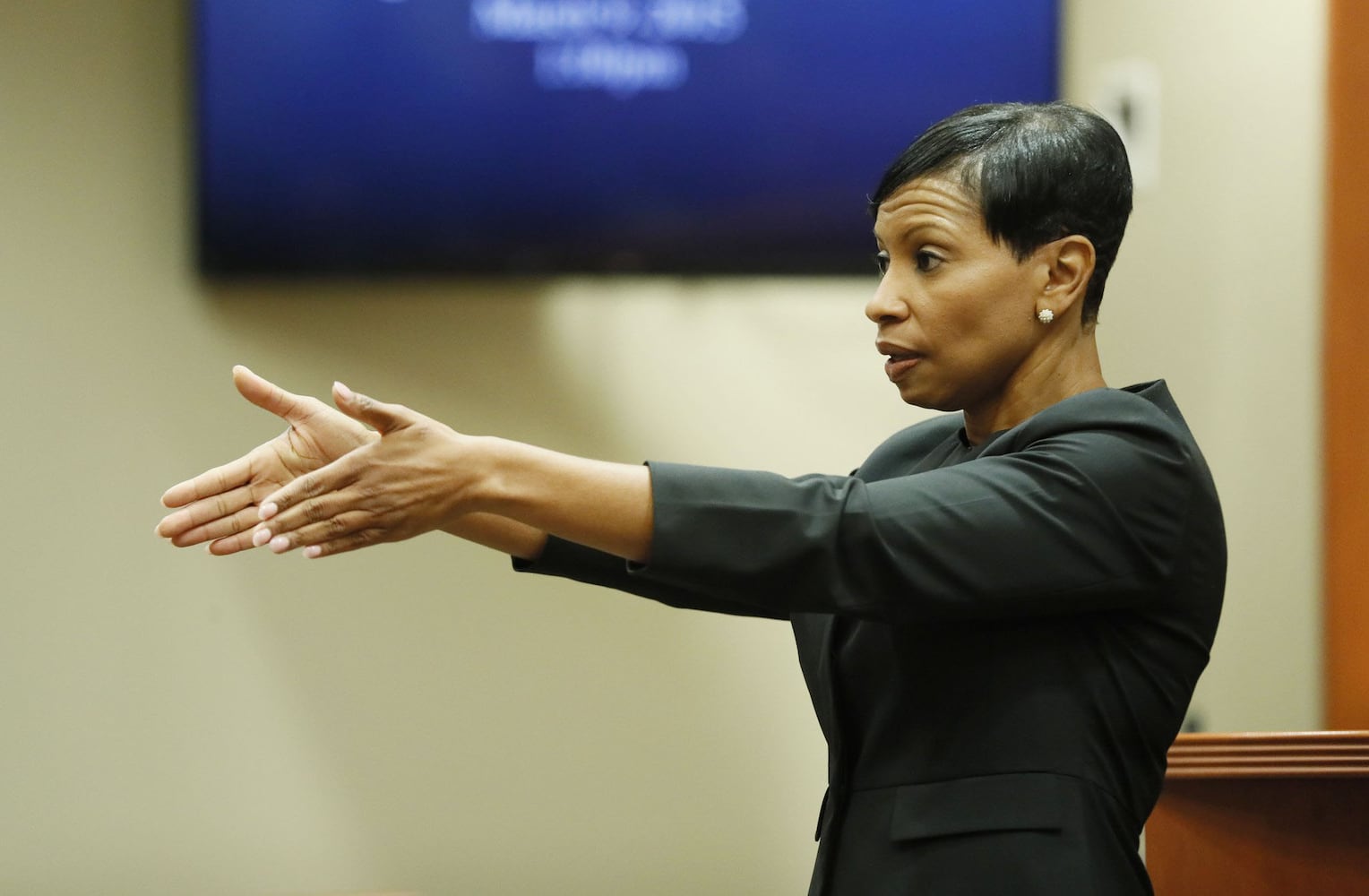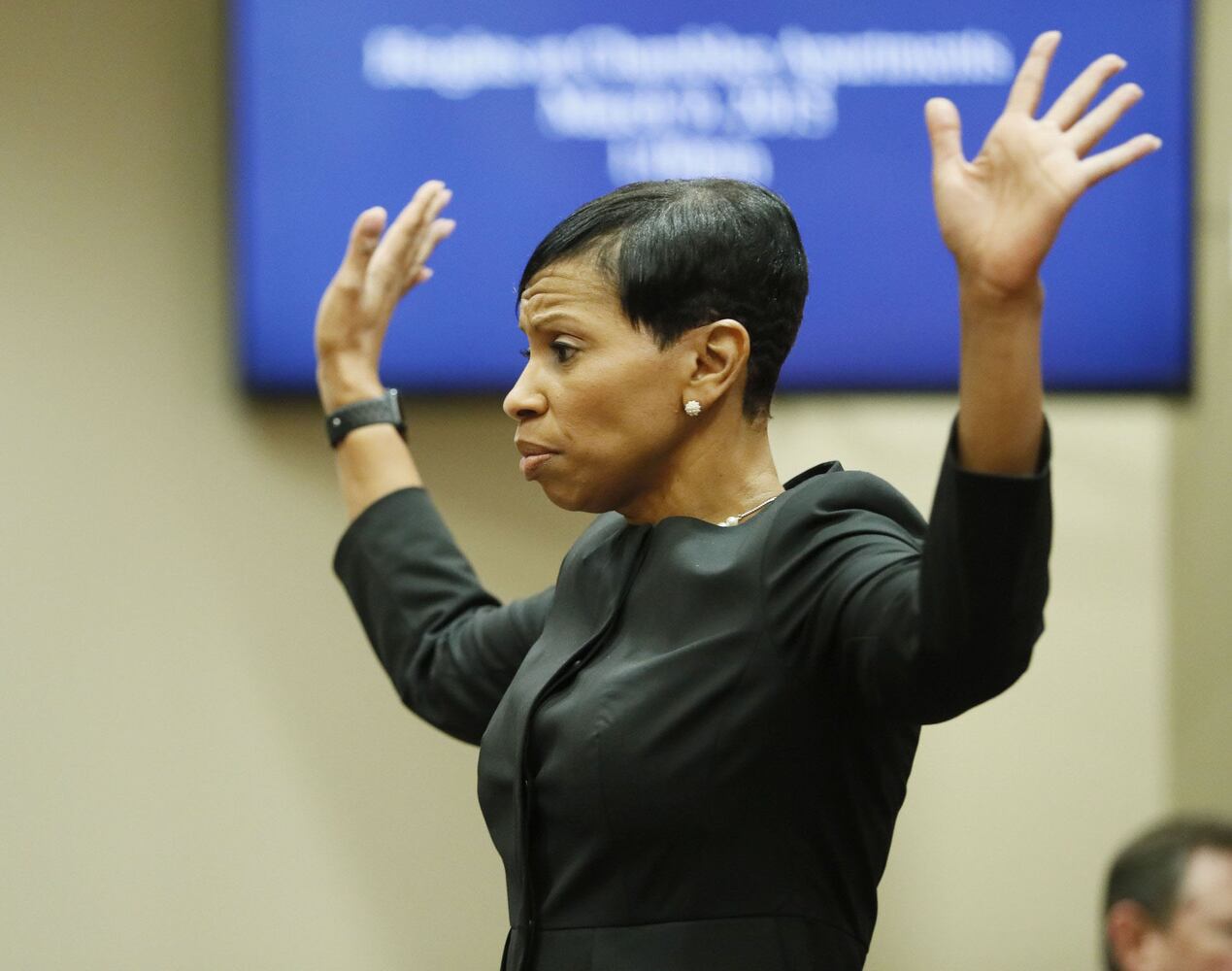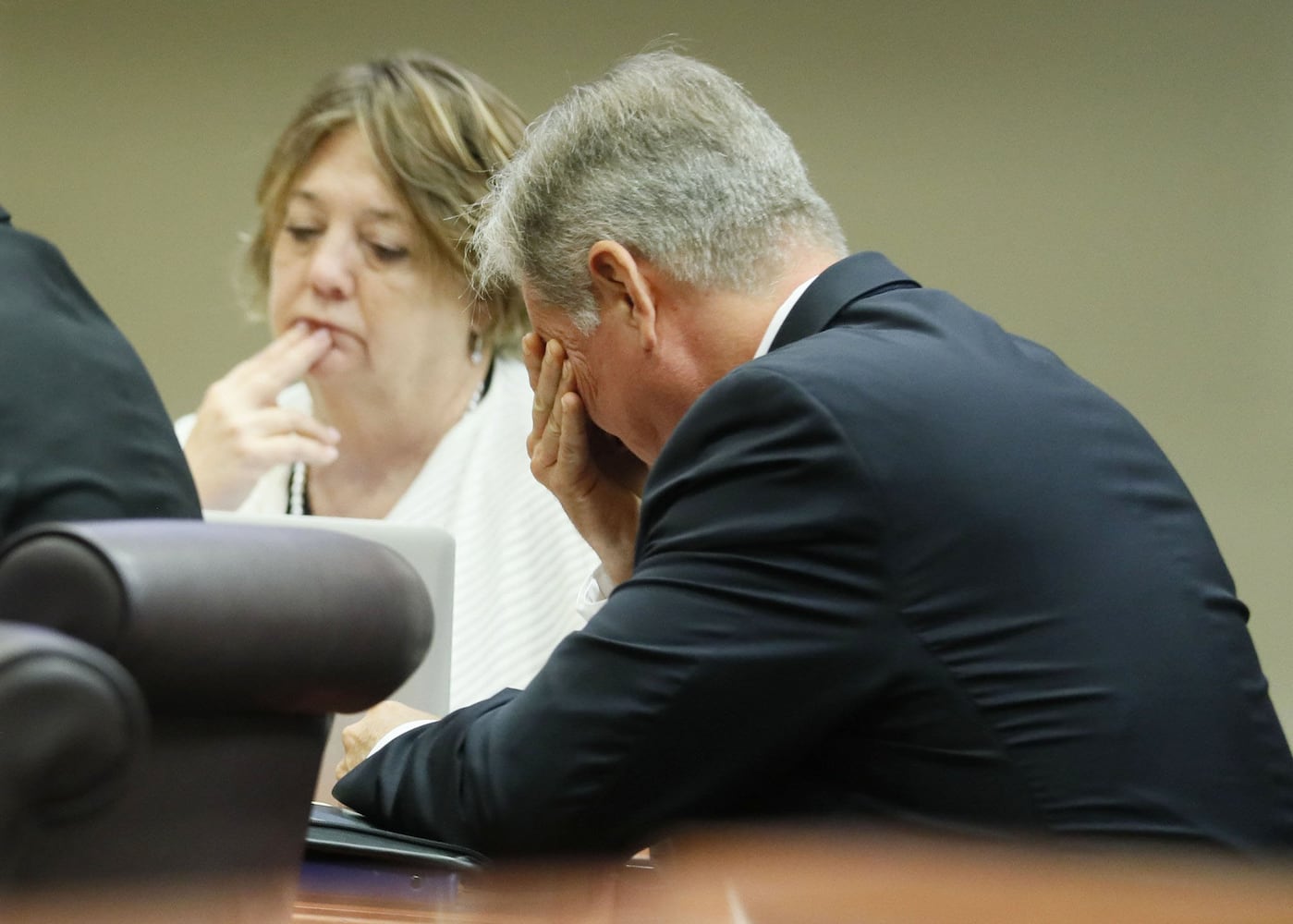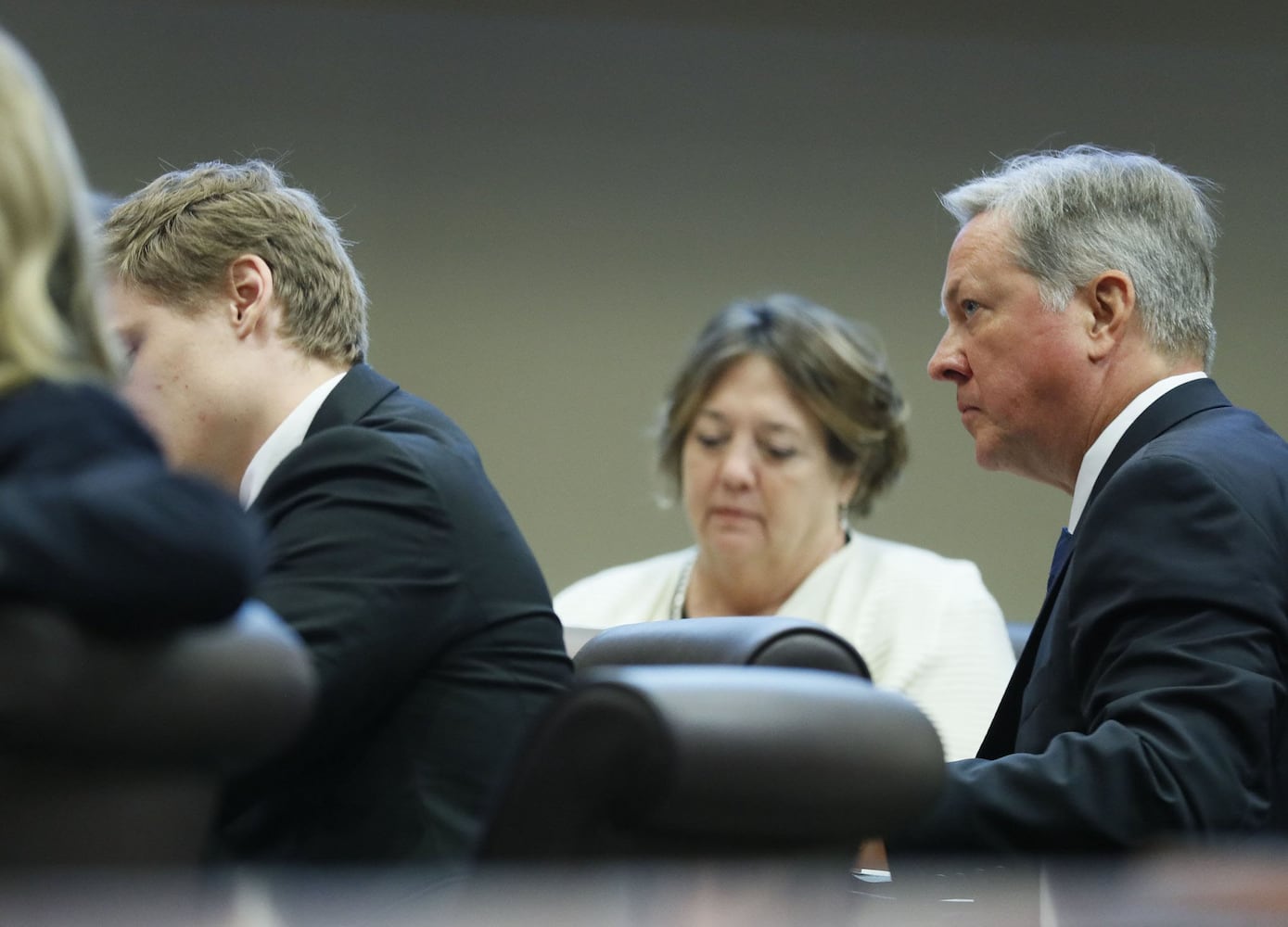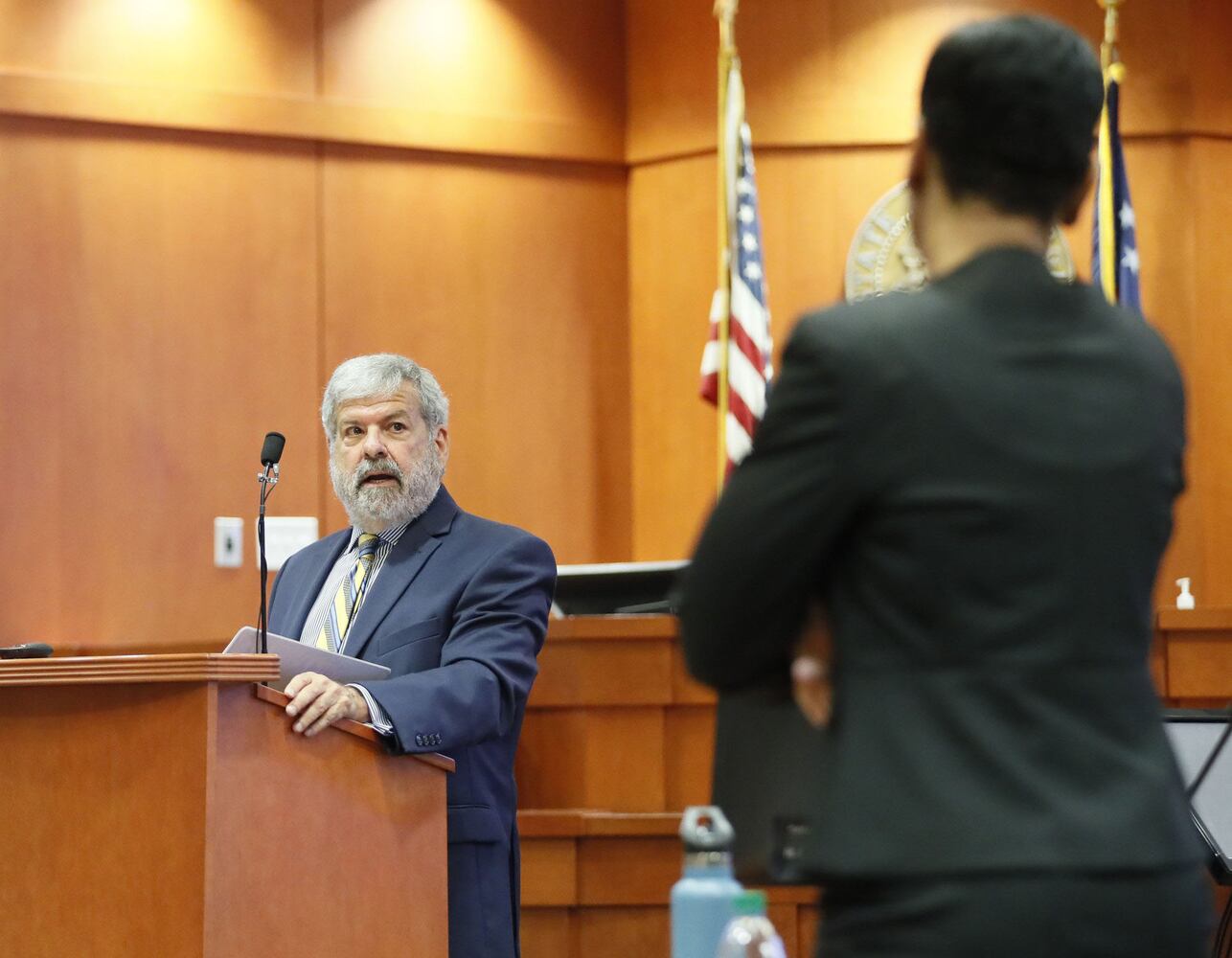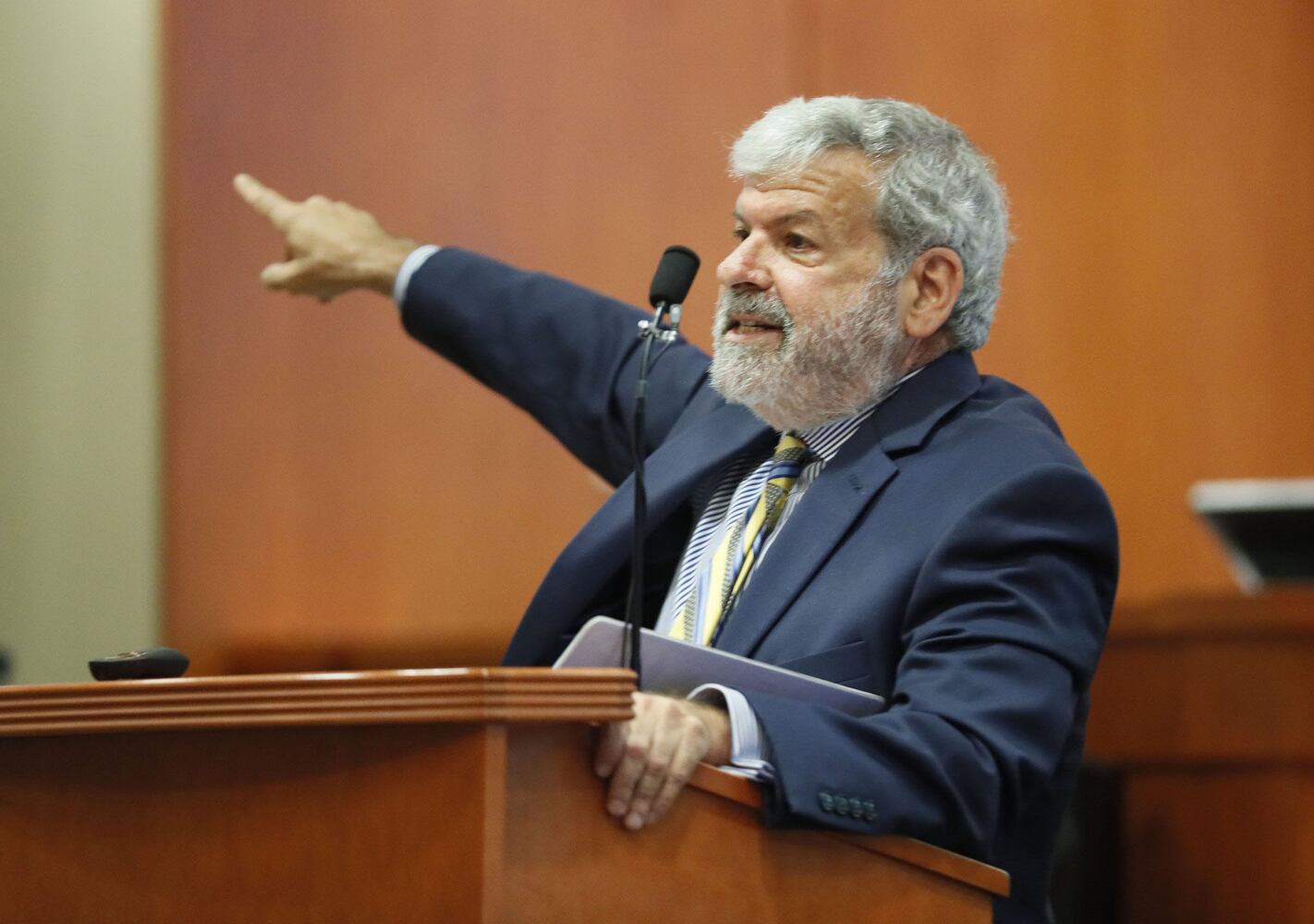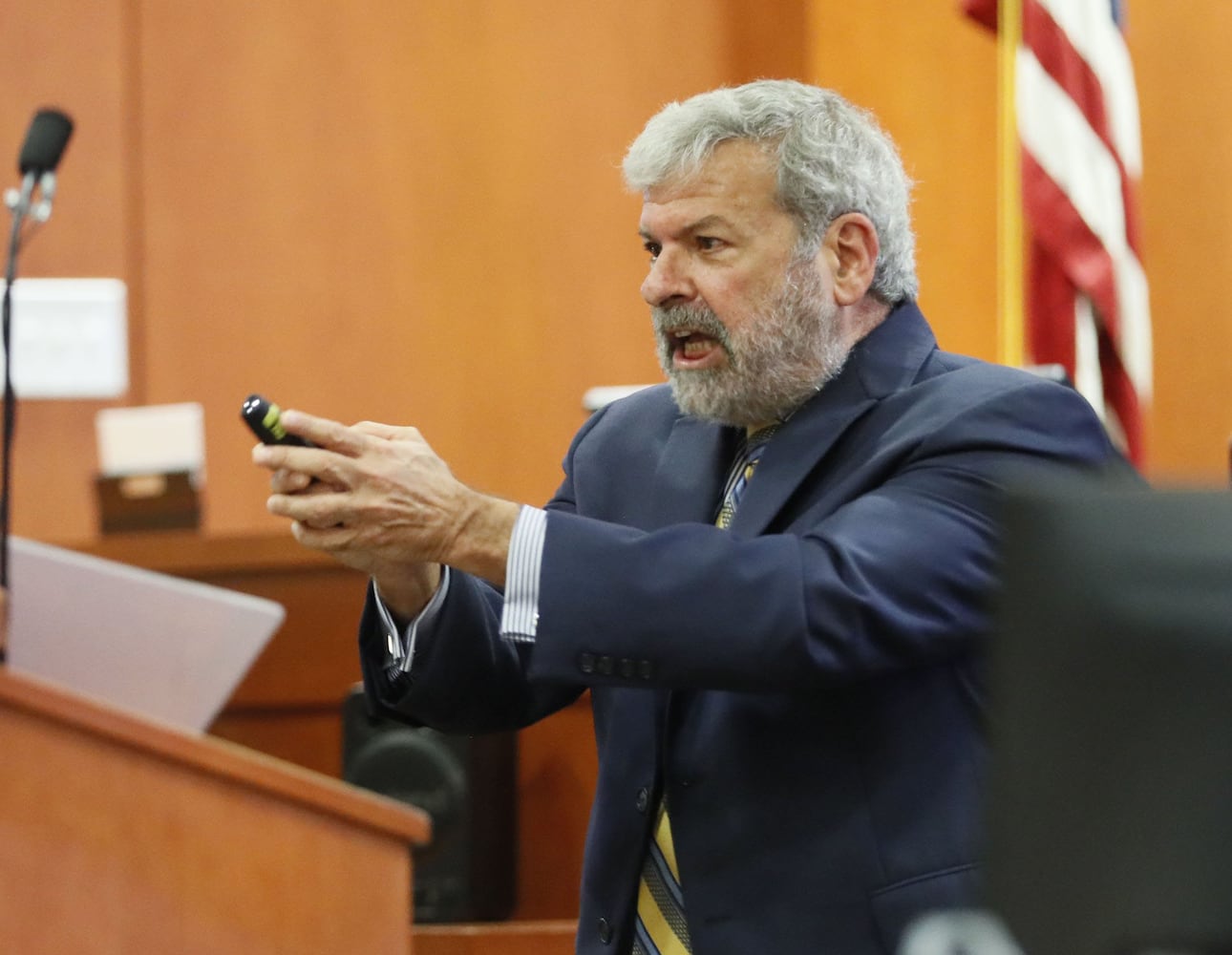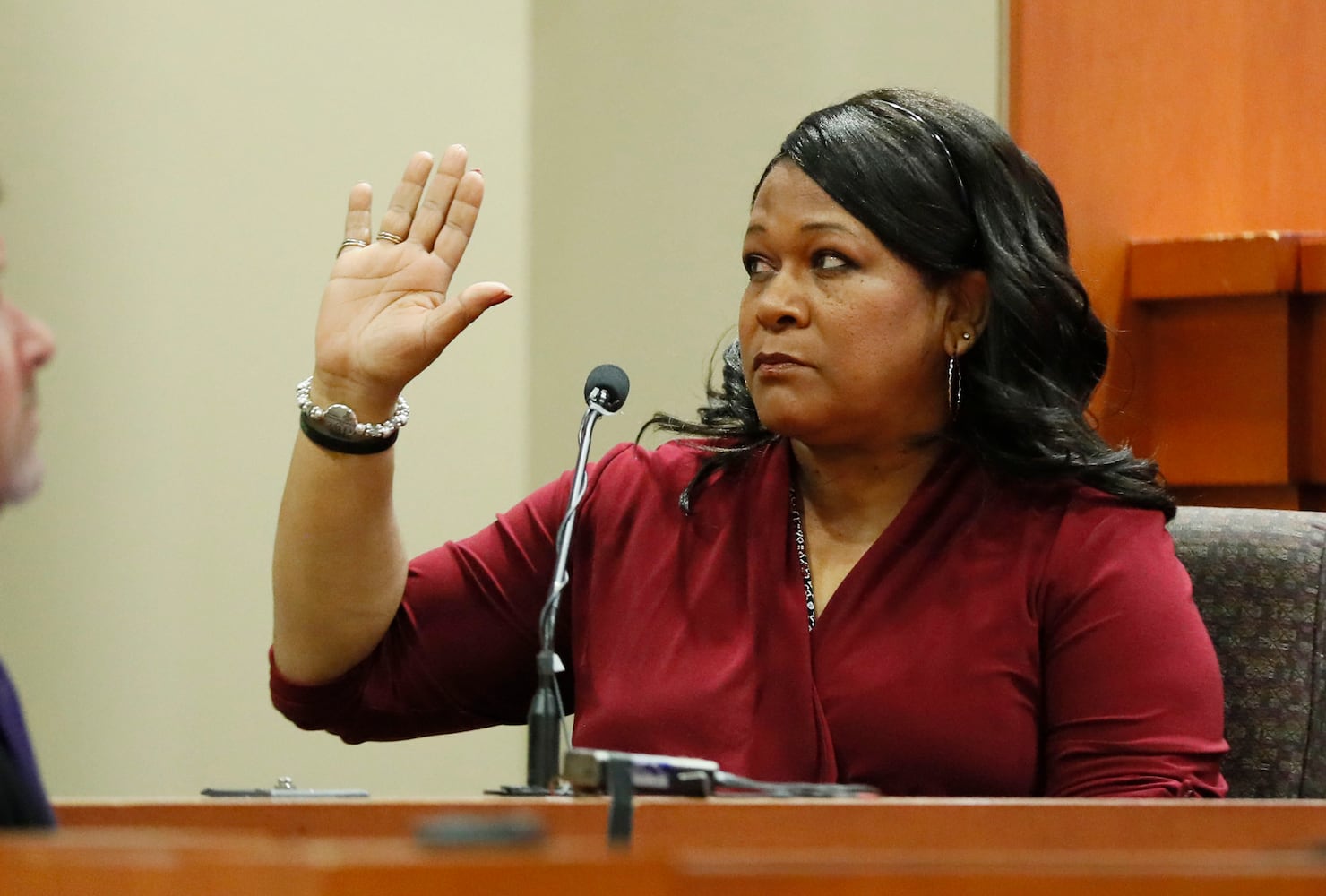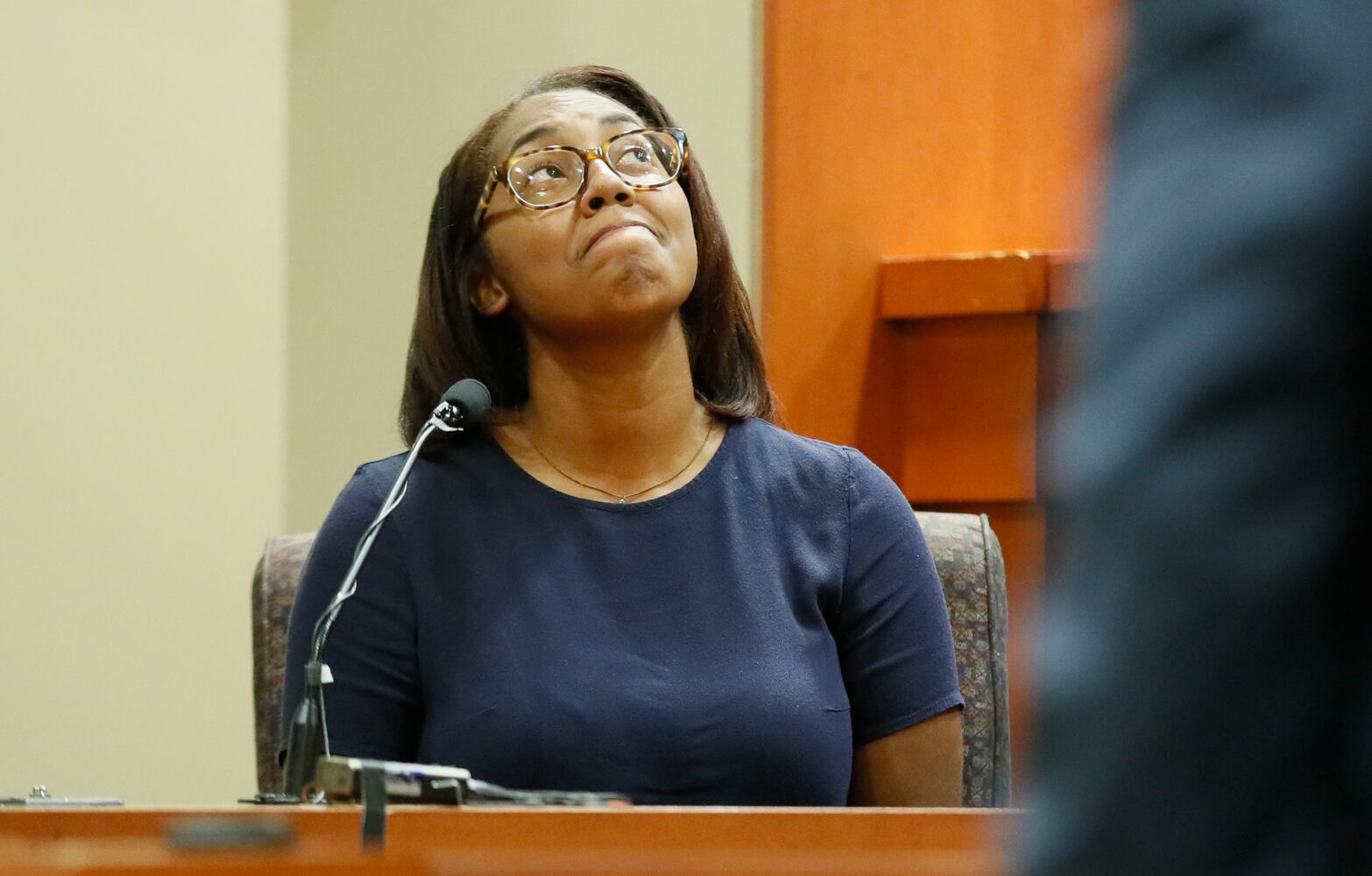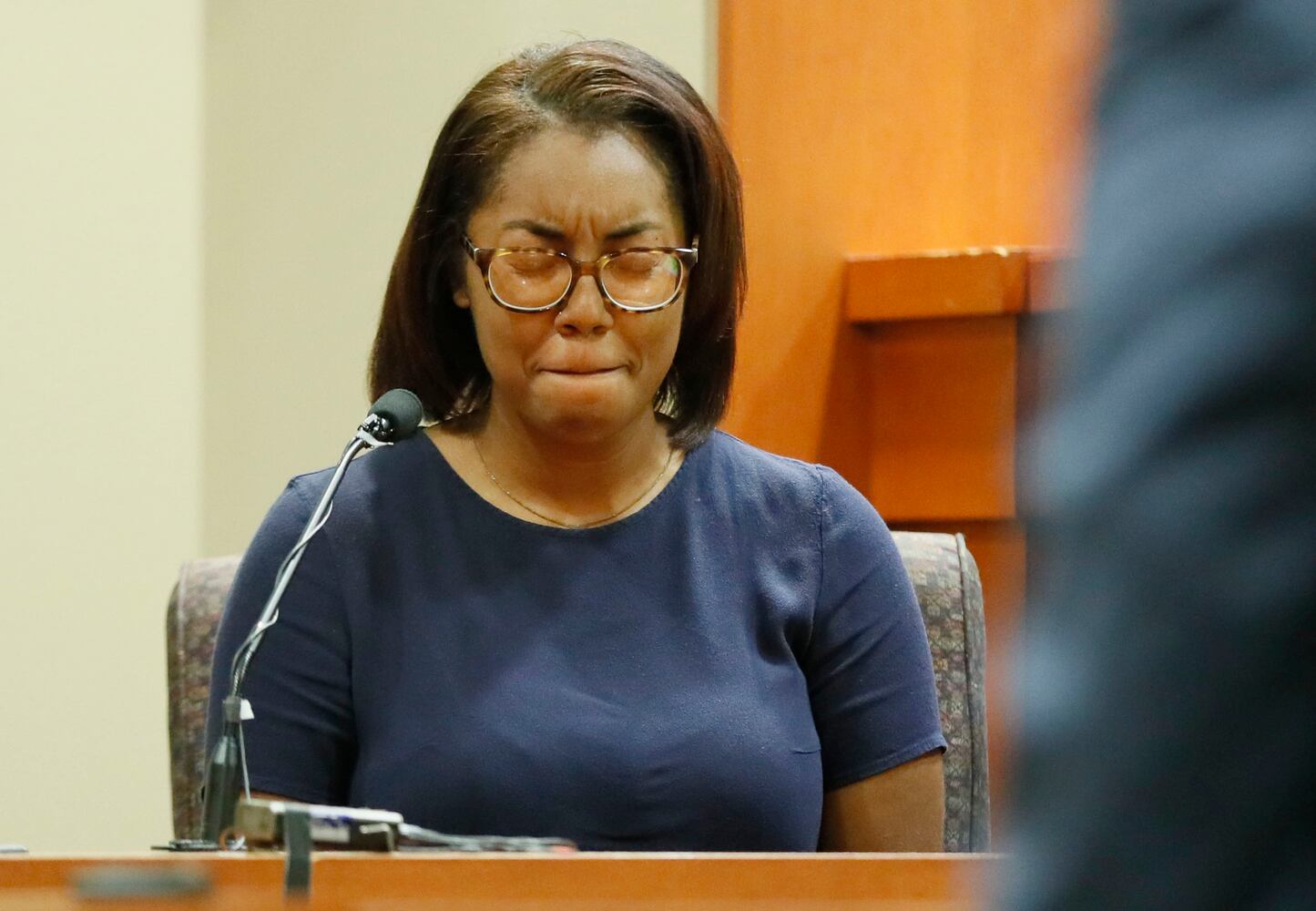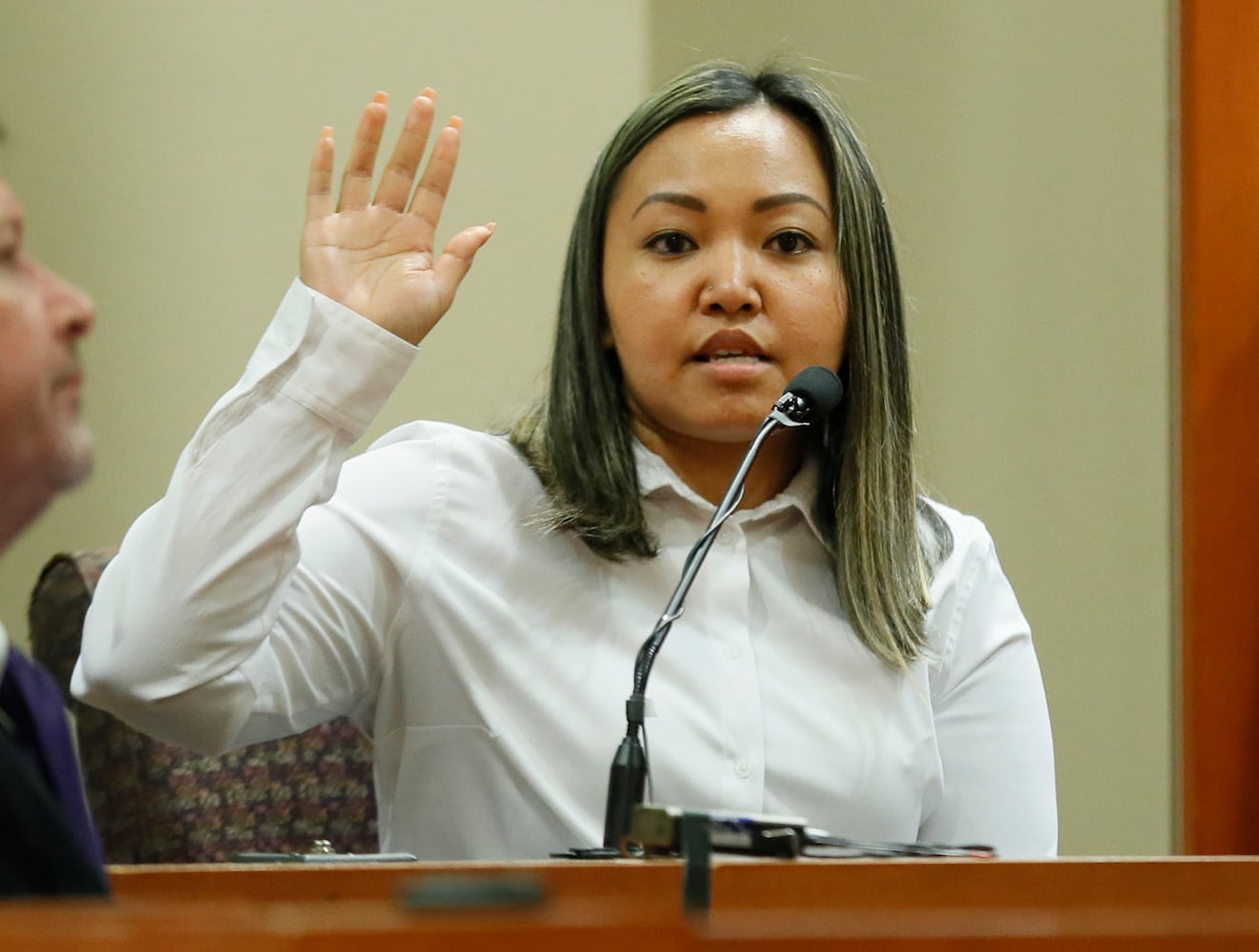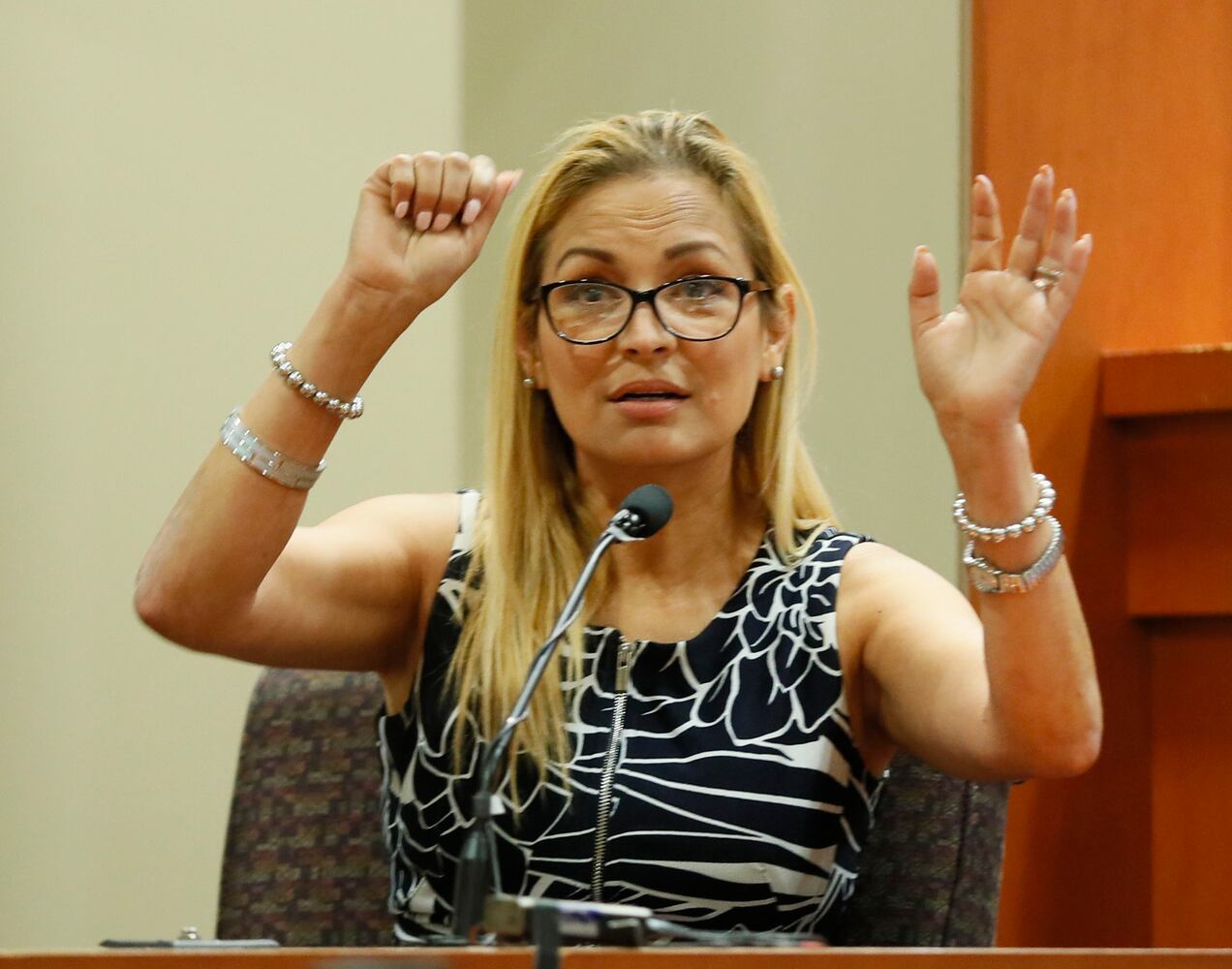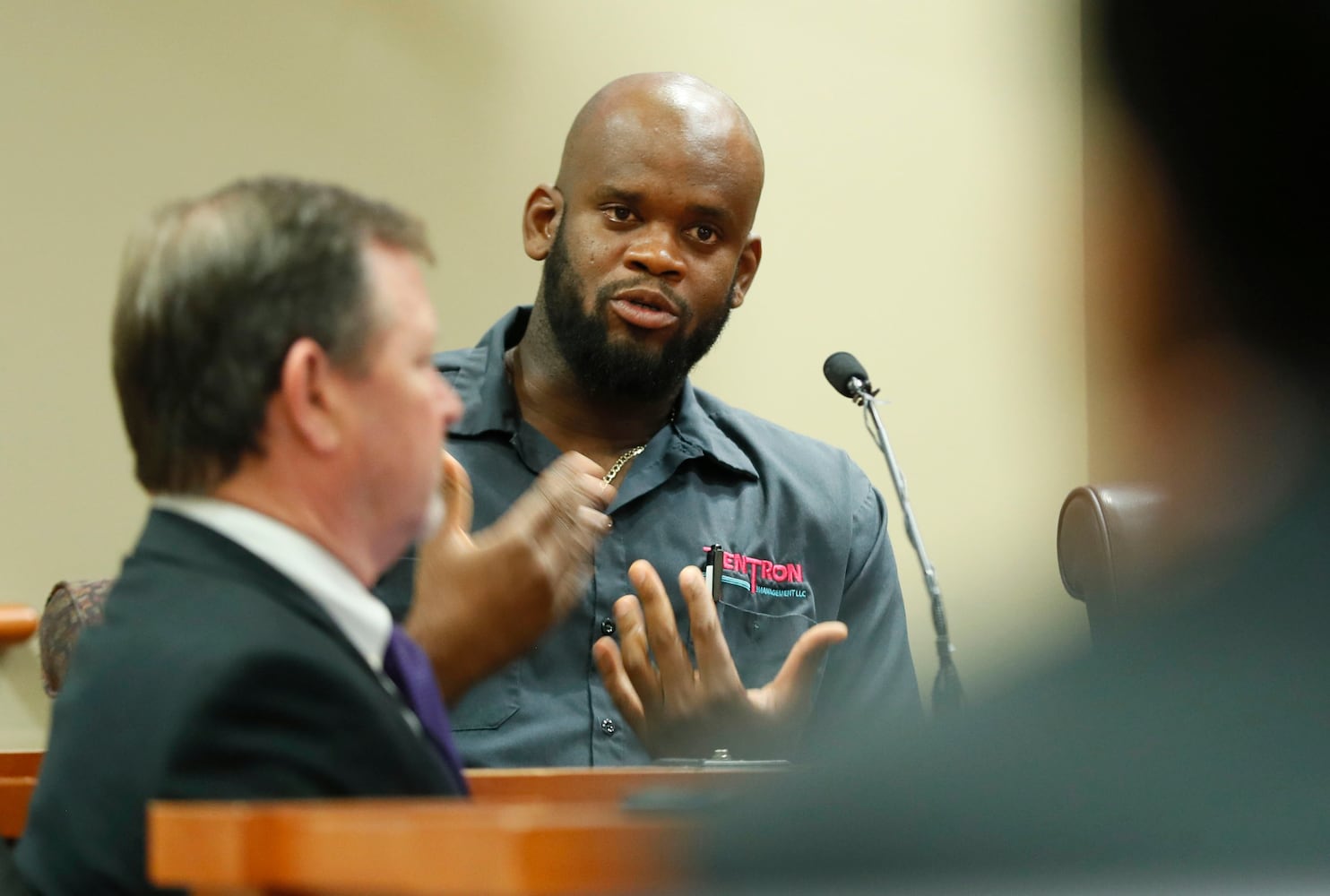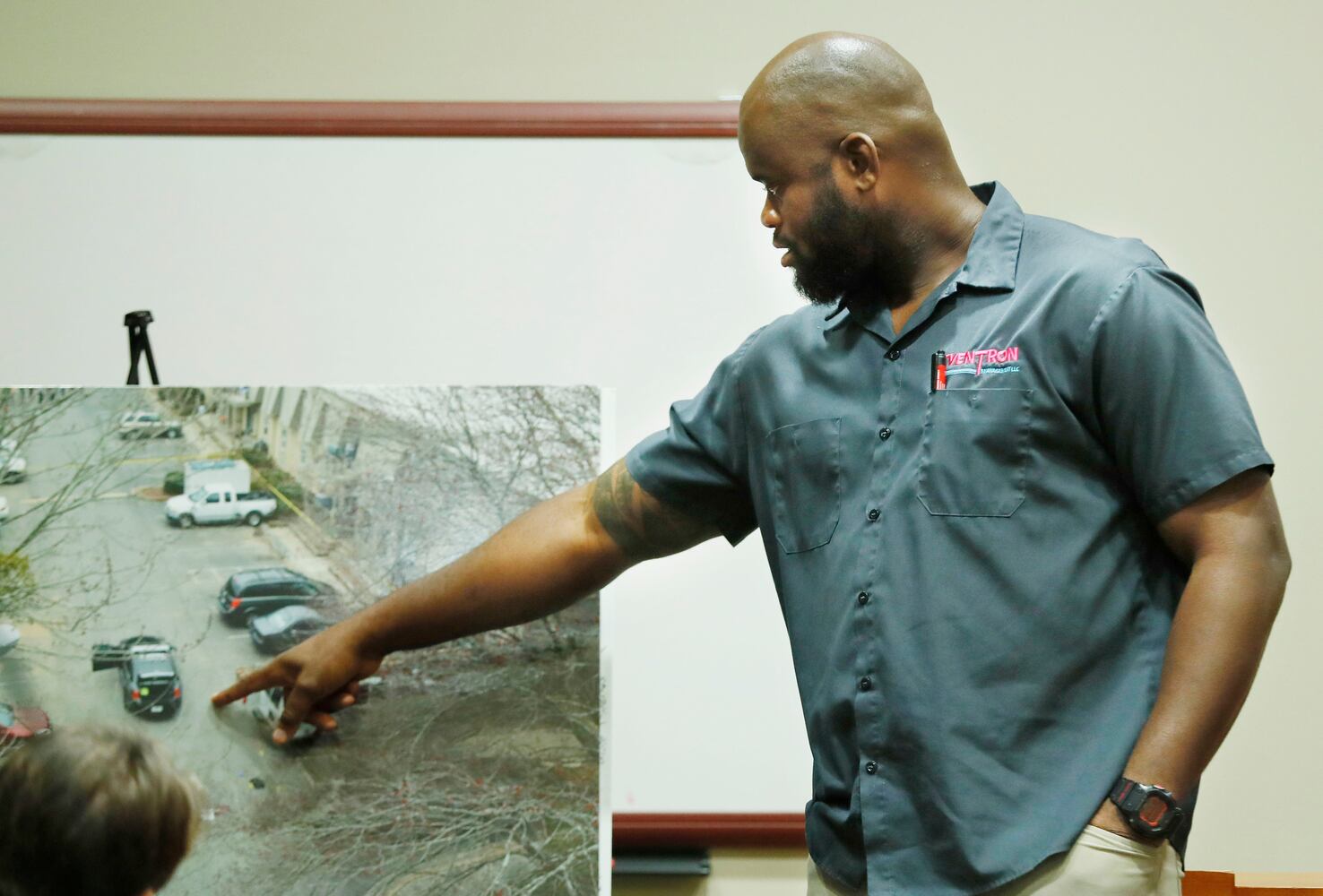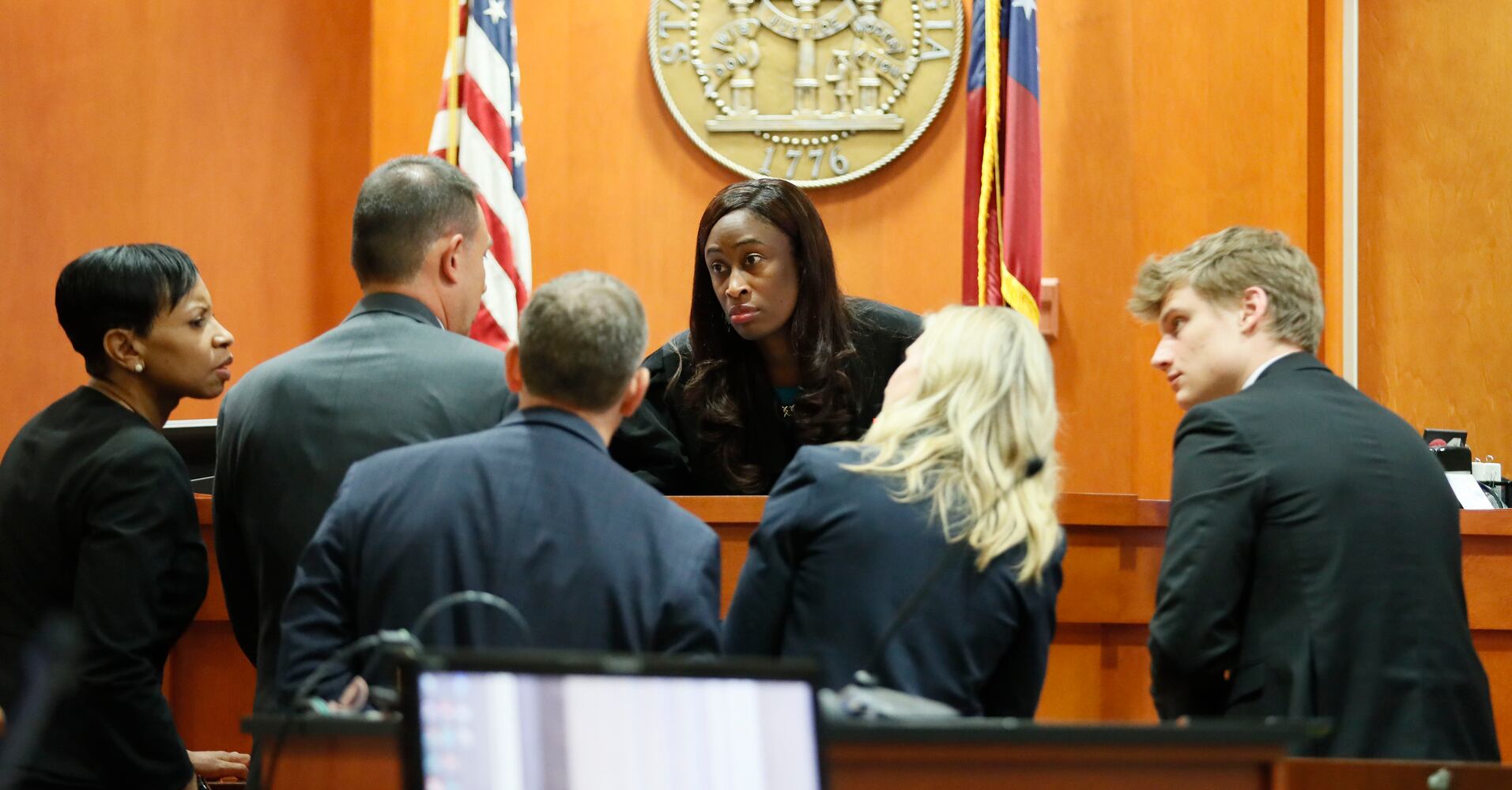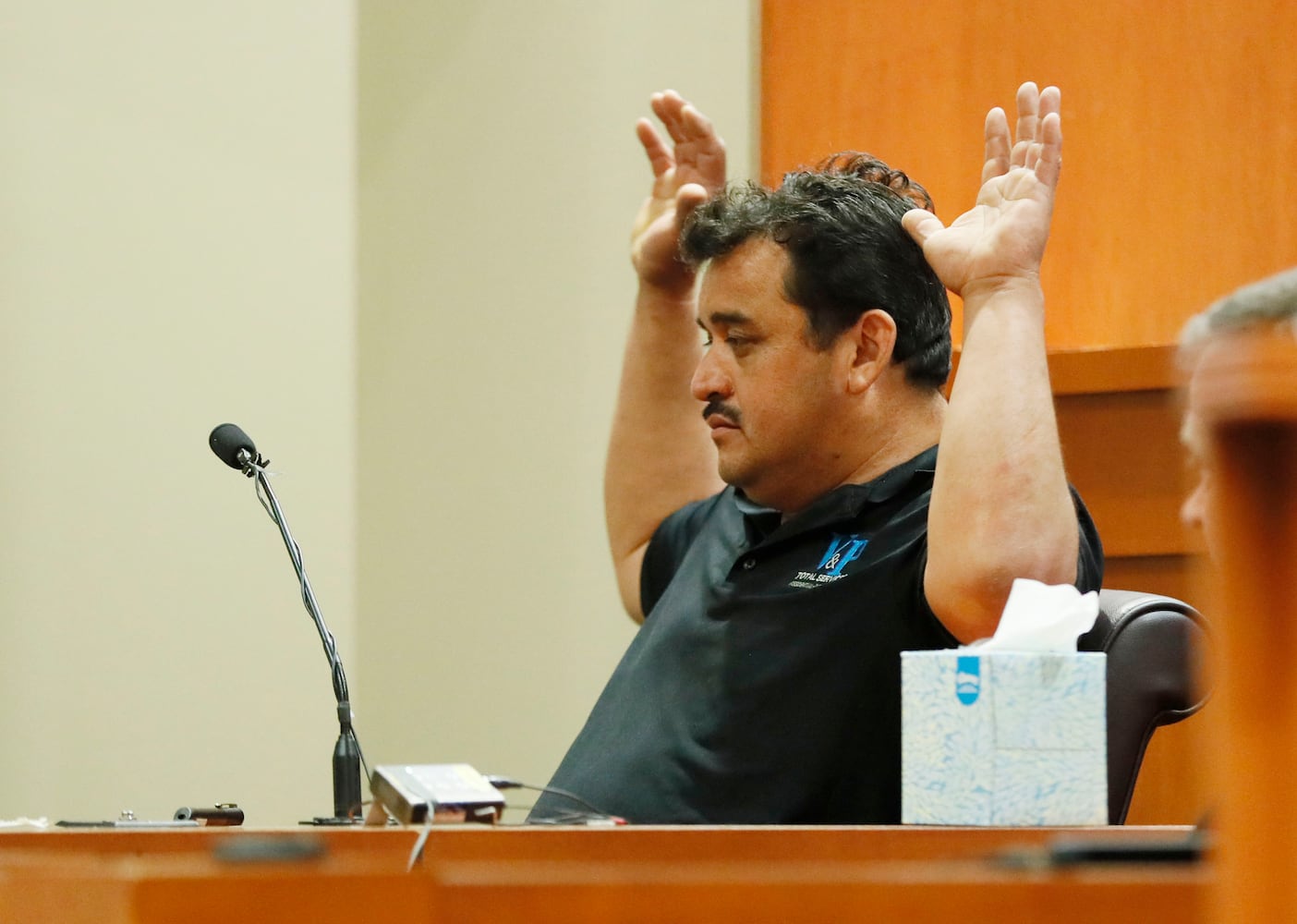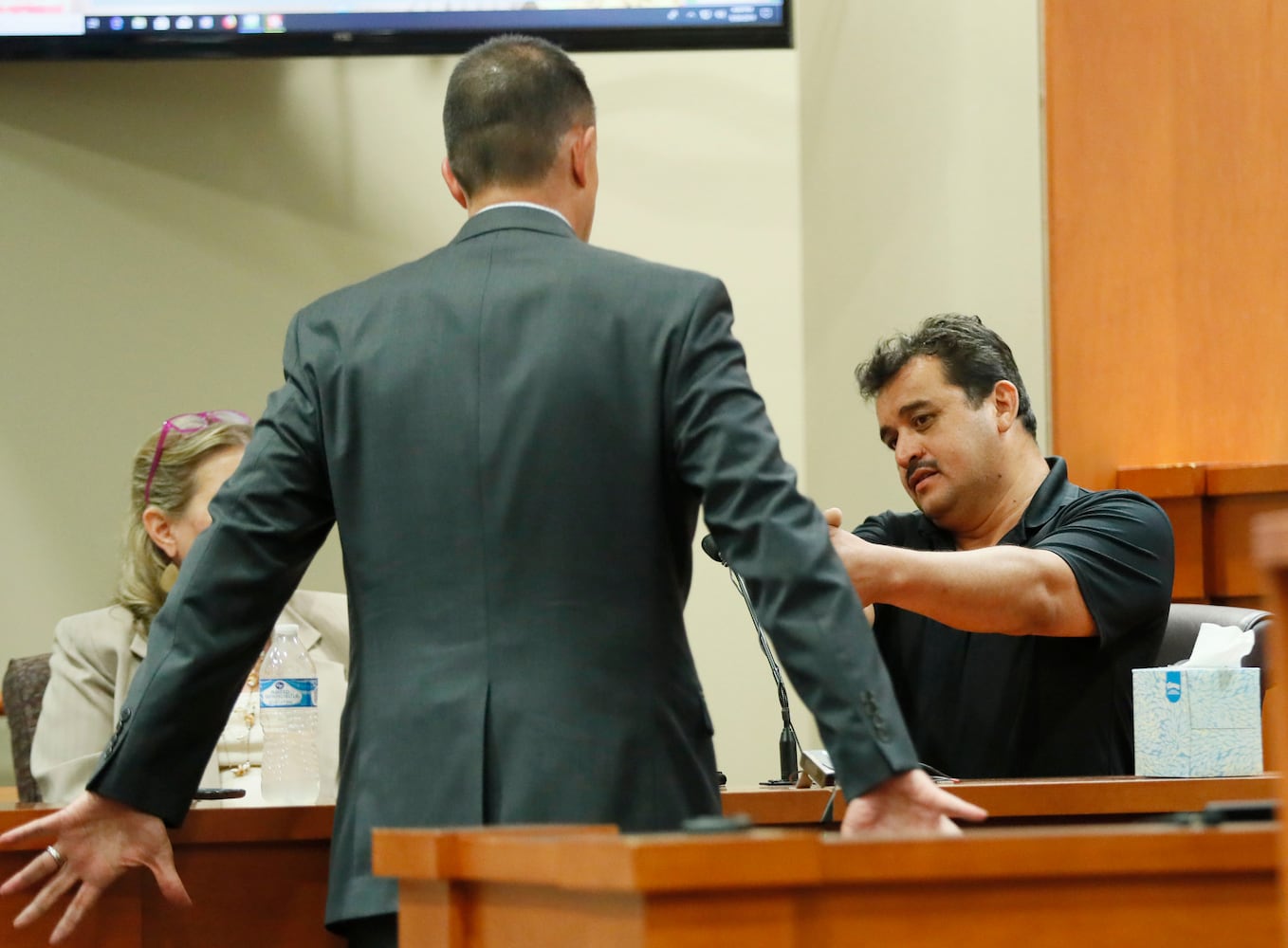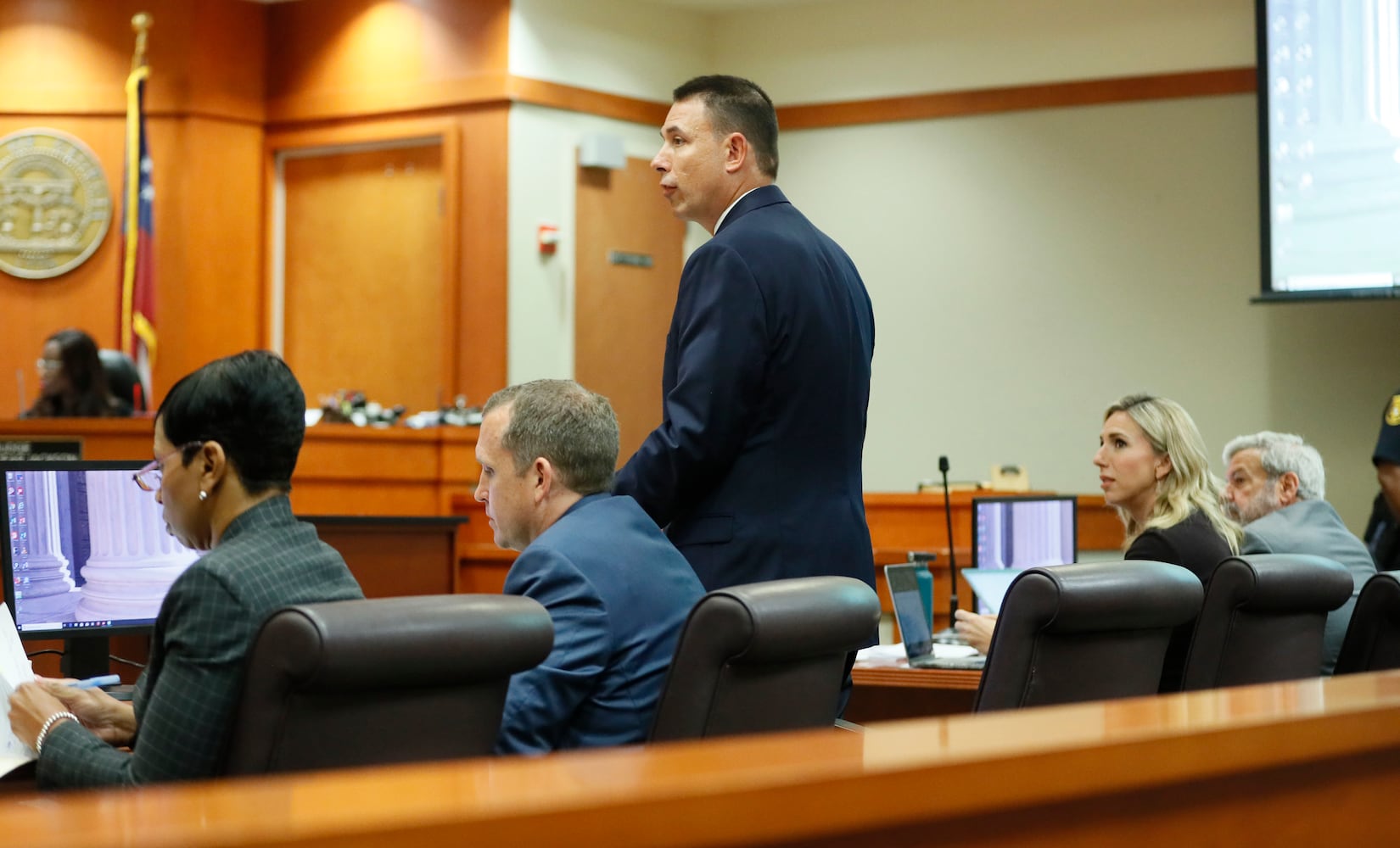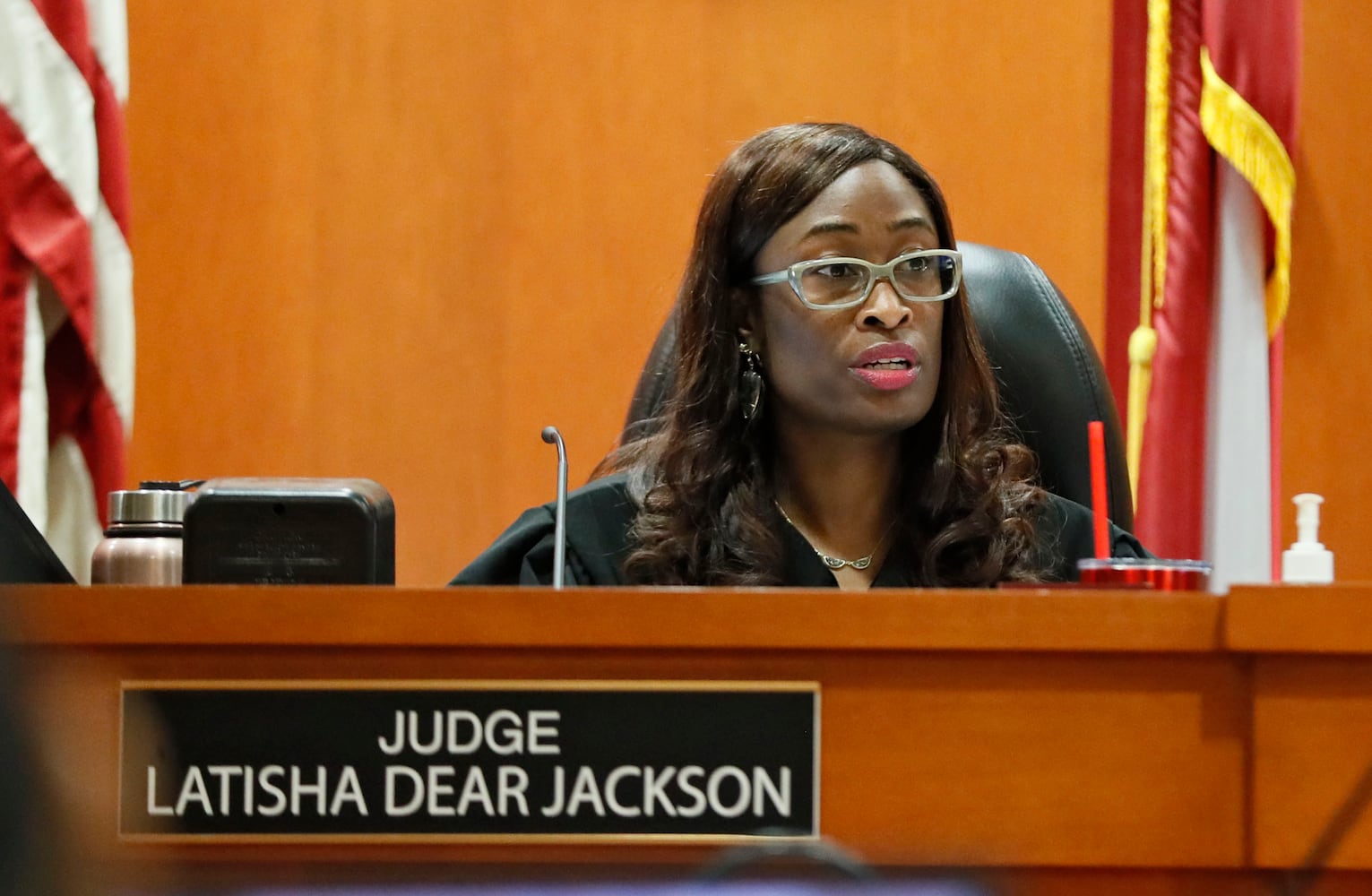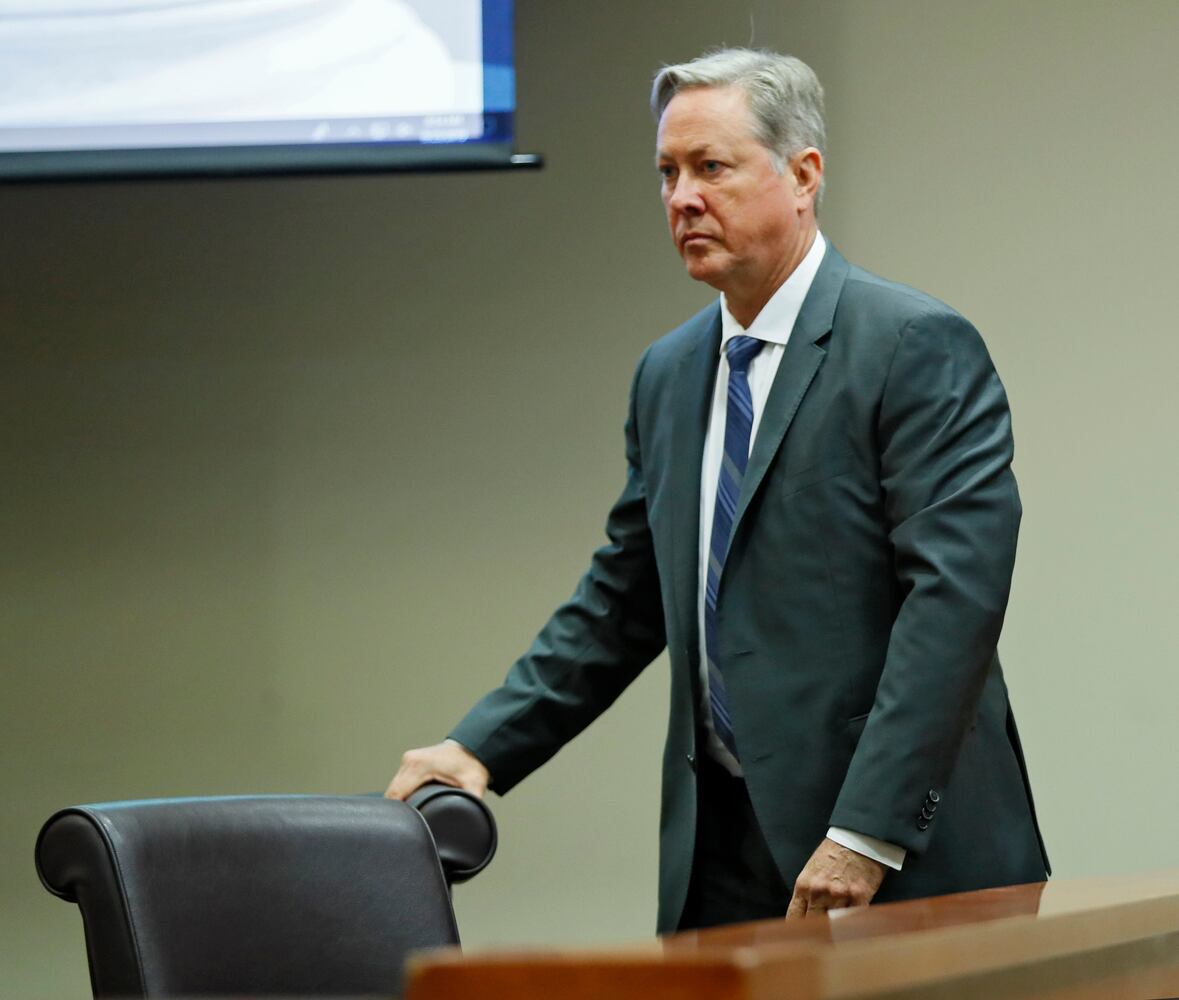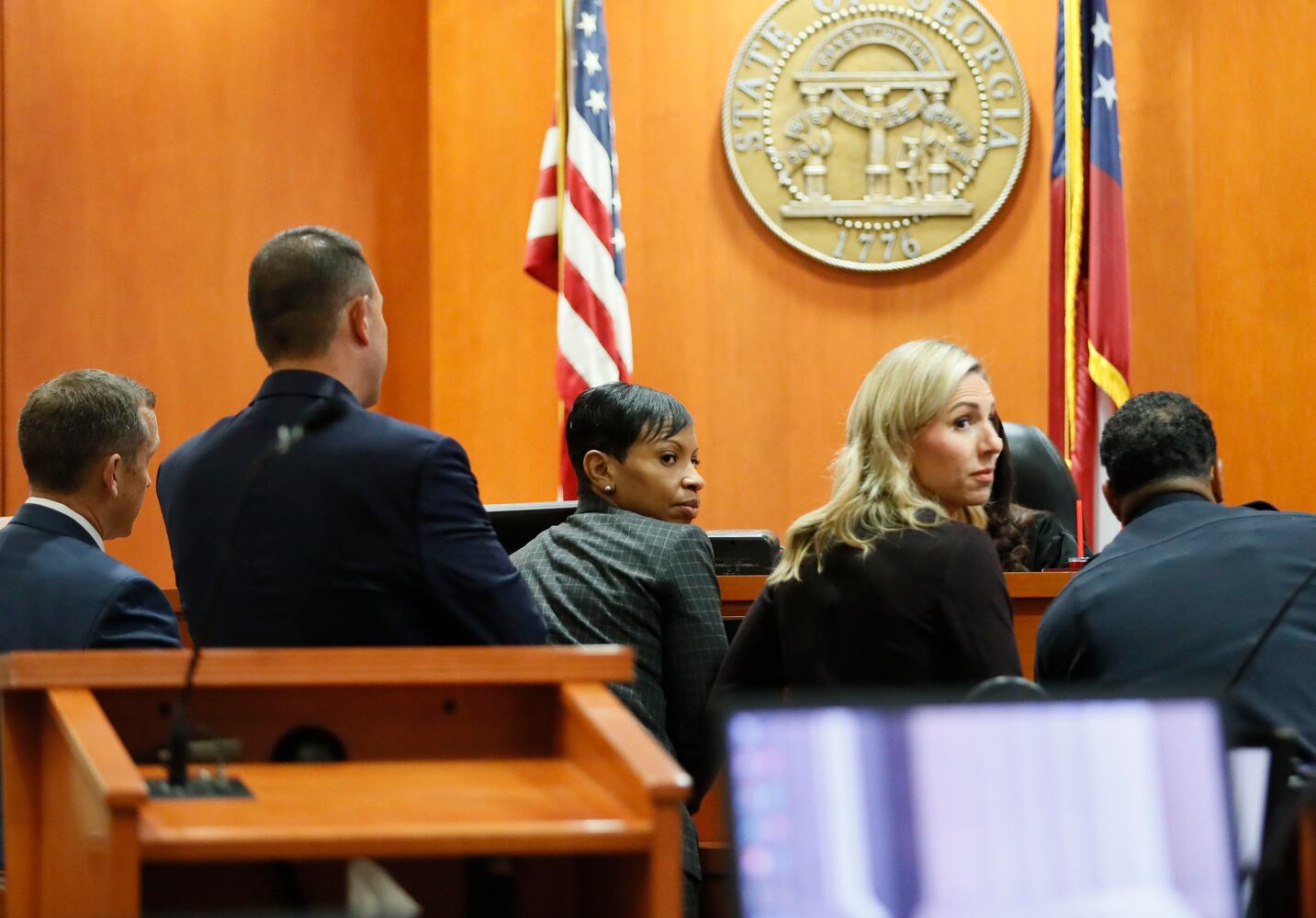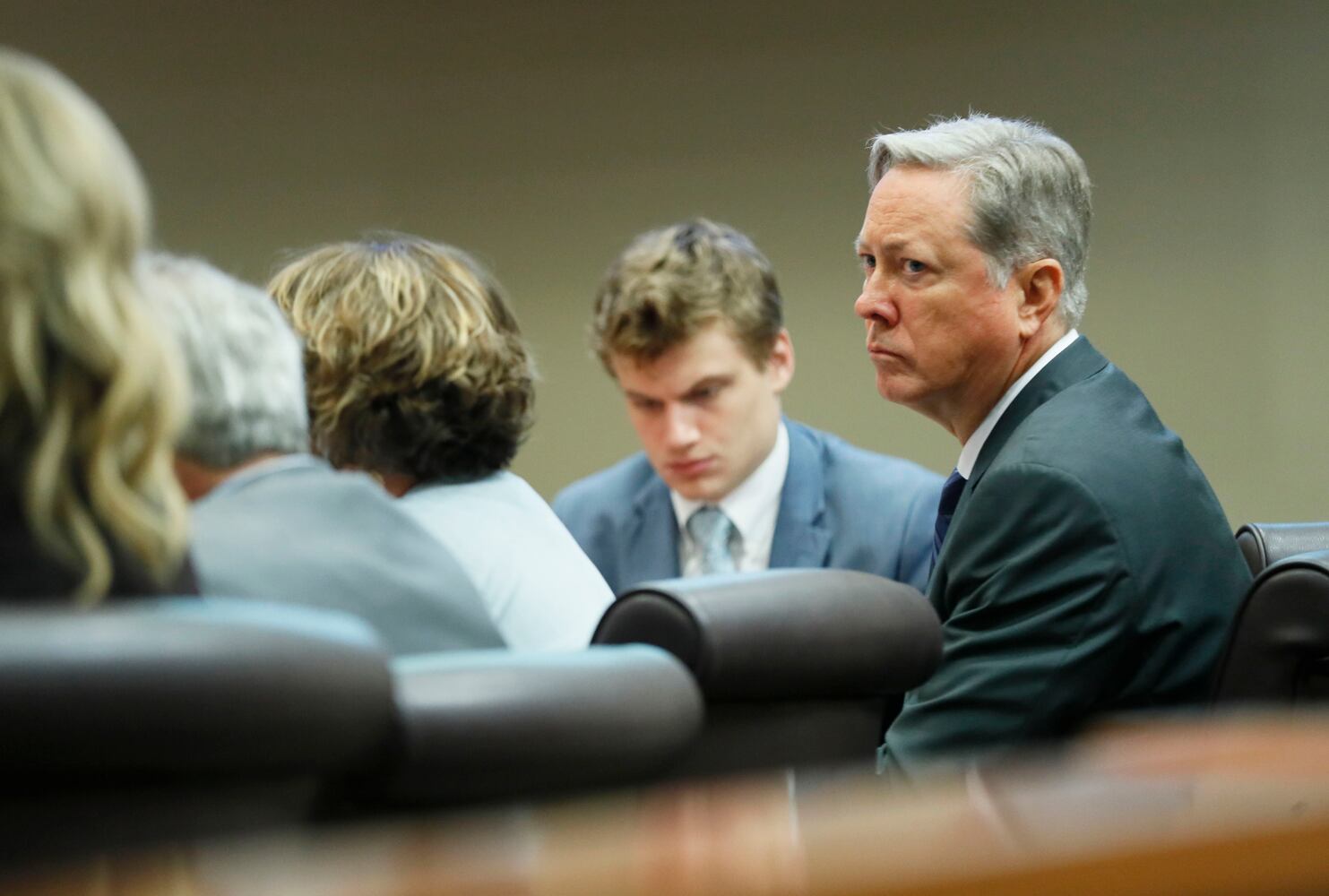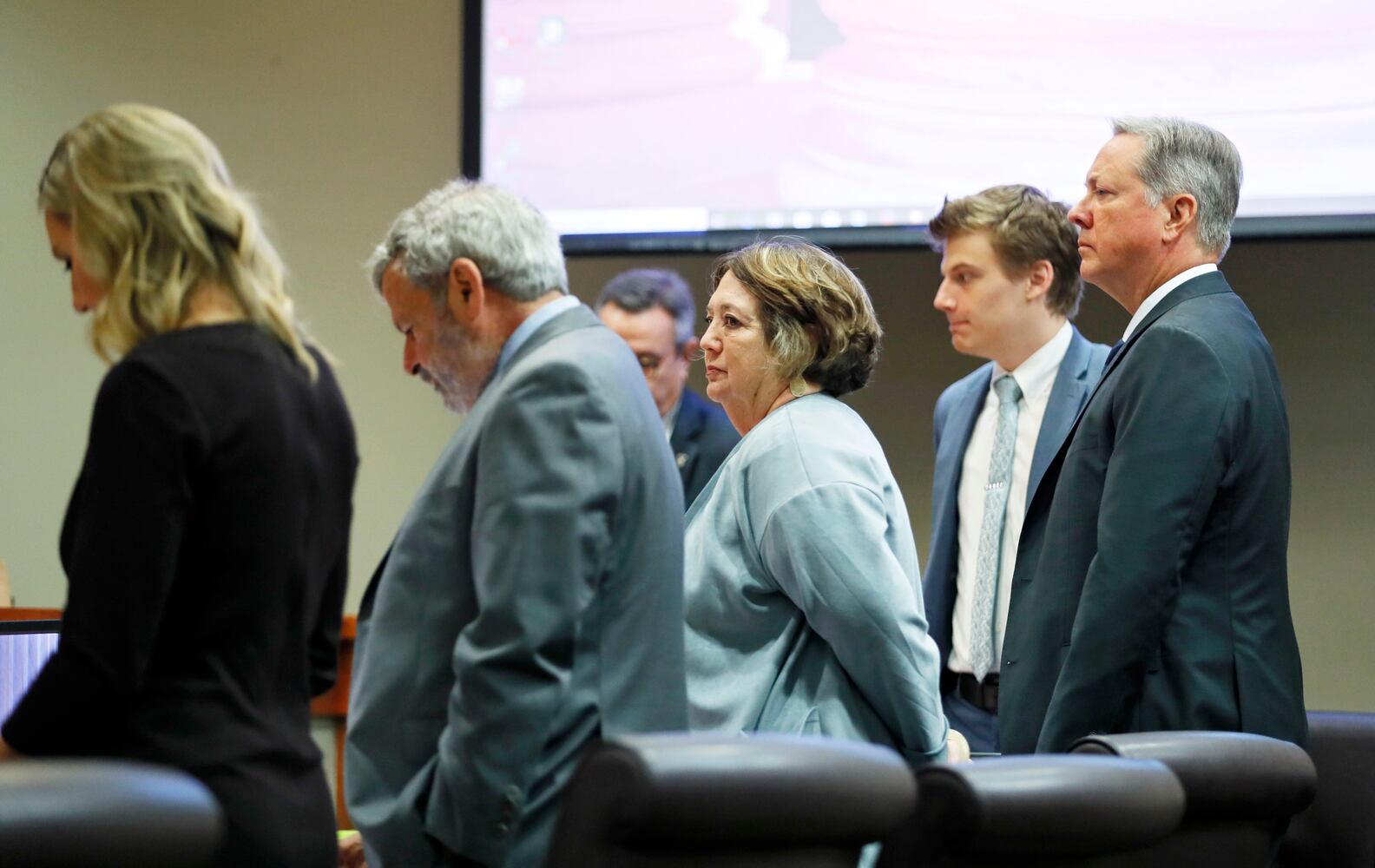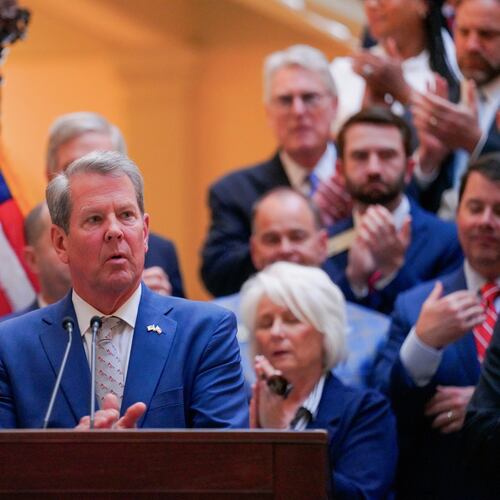Contrasting versions of what transpired during the final seconds of Anthony Hill’s life, and what motivated the police officer who ended it, were presented to jurors Thursday, the first day of testimony in the Robert “Chip” Olsen murder trial.
Did Olsen fire two fatal shots at the rapidly approaching Hill because Olsen was, in his lawyer’s words, “scared to death”? According to the state, the former DeKalb County cop wasn’t afraid, even though Hill twice ignored his commands to stop. He was just uncomfortable with the 26-year-old man’s nudity.
DeKalb County prosecutor Buffy Thomas said Olsen, 57, never told GBI investigators that Hill — “unarmed, unclothed and unable to harm” — posed a threat to his safety during their March 9, 2015, encounter outside the Heights of Chamblee apartment complex.
“He was unreasonable. And unjustified,” Thomas said of the defendant.
“Never once does he refer to Anthony by name,” Thomas said in her opening statement.
Instead, there were mentions of Hill’s “bulging quadriceps muscles,” the prosecutor said. “He never even refers to him as a human being.”
Credit: Bob Andres
Credit: Bob Andres
It was an unusual conclusion to what had been a concise, relentless opening. Olsen, who displayed little emotion during previous court sessions, broke down in tears as Thomas recounted the shooting. Soon after, Kathy Olsen was seen outside the courtroom reassuring her emotionally spent husband.
The stakes couldn’t be higher for the former officer. He is charged with two counts of felony murder and faces life in prison if convicted. Last week, prosecutor Pete Johnson disclosed that the defense turned down a plea agreement that would have carried a 20-year sentence with 15 to serve.
Lead defense attorney Don Samuel derided the “Monday morning quarterbacking” that followed his client’s decision to shoot. He repeatedly reminded jurors that Olsen had only 6 or 7 seconds to react to what was unfolding before him.
“He didn’t pull out his gun in order to shoot,” Samuel said. “He pulls it out to stop Anthony Hill from running at him. Yet he’s the one who’s charged with assault.”
Olsen, he said, was backing away from Hill, trying to de-escalate, before finally firing his weapon.
“I want you to think for a second how frightening that must be, how frightening it was for Chip Olsen,” Samuel said. “Chip Olsen was scared to death.”
Credit: Bob Andres
Credit: Bob Andres
Olsen had no reason to be so afraid, Thomas said in her opening.
“His hands were visible. He was stark naked,” Thomas said of Hill, who was an Afghanistan War veteran. “He never uttered a word as he was running towards the officer. He never threatened them. He wasn’t aggressive.”
A witness to the shooting, maintenance worker Deni Hechavarria, offered a different explanation.
Under cross-examination, Hechavarria said Olsen “panicked” after firing the shots, and he heard him say, “No, no. Oh, no, no.”
Credit: Bob Andres
Credit: Bob Andres
Hechavarria also acknowledged that he believed Olsen did not want to shoot Hill based on “the way he reacted after he shot him.”
Grisselle Torres, the manager of the Heights at Chamblee who made the first call to 911 about Hill, testified that she ran from her office to the parking lot after hearing two gunshots.
There was Hill, face down, in a pool of blood.
“Why did you shoot him?” Torres recalled asking Olsen. She began weeping on the stand.
“It was not my intention for him to be shot,” she said.
Credit: Bob Andres
Credit: Bob Andres
The state attempted to bring additional clarity to Hill’s final moments through the testimony of maintenance worker Pedro Castillo Flores, delivered through an interpreter.
He was asked whether Hill was running or jogging as he approached Olsen.
“A little bit faster” than jogging is how Flores described it.
At first, Hill’s hands were held above his head in surrender mode, Flores testified. As Hill got closer, he brought his outstretched arms down, his hands spread out behind his back.
Flores said it appeared Hill was daring Olsen to act.
“Go ahead, do something to me. … You can’t do anything to me,” he testified.
Credit: Bob Andres
Credit: Bob Andres
Like the other eyewitnesses, Flores said he never felt threatened by Hill. Even when he told him, “The devil is coming.”
Hechavarria testified that around that same time, Hill seemed relieved when he was told the cops were on the way.
“The police are my friends,” Hill responded, according to Hechavarria.
Olsen didn’t know any of that, Samuel told the seven-woman, five-man jury, which had been seated just an hour earlier. Olsen also didn’t know that Hill was a U.S. Air Force veteran who had received a medical discharge after being diagnosed with bipolar disorder.
All Olsen knew was what the 911 dispatcher told him: A man at the complex was acting suspiciously, was possibly demented and had taken off all his clothes, Samuel said.
But Thomas said Olsen knew enough and should have responded differently.
“He knew backup was on the way,” she said.
And he had been well trained in dealing with civilians in crisis. Armed with lethal and non-deadly force, Olsen was 40 pounds heavier and 5 inches taller than Hill, Thomas said.
Samuel acknowledged that jurors might conclude that Olsen used bad judgment when he shot Hill. They may also believe he belonged behind a desk, not out in the field, his lawyer said.
“One thing you can’t say is that Chip Olsen is a murderer,” Samuel said. “Because he’s not.”
The murder trial of Robert “Chip” Olsen is the subject of Season 7 of The Atlanta Journal-Constitution’s award-winning podcast “Breakdown.” The first episode of “Judgment Call” will be available Friday.
Subscribe on Apple Podcasts, Google Play, Stitcher, Spotify or anywhere you listen to podcasts.
Keep Reading
The Latest
Featured
